Frequent persons on Serbia's street signs
countries
242 names / 1341 streets
Karađorđe
 49
Đorđe Petrović, known by the sobriquet Karađorđe, was a Serbian revolutionary who led the struggle for his country's independence from the Ottoman Empire during the First Serbian Uprising. He held...
49
Đorđe Petrović, known by the sobriquet Karađorđe, was a Serbian revolutionary who led the struggle for his country's independence from the Ottoman Empire during the First Serbian Uprising. He held...
Uz Maršala Tita
 44
Uz Maršala Tita is a Yugoslav Partisan anthem about the leader of the country's liberation movement in World War II, Josip Broz Tito, written by Vladimir Nazor and composed by Oskar Danon.
44
Uz Maršala Tita is a Yugoslav Partisan anthem about the leader of the country's liberation movement in World War II, Josip Broz Tito, written by Vladimir Nazor and composed by Oskar Danon.
Vuk Karadžić
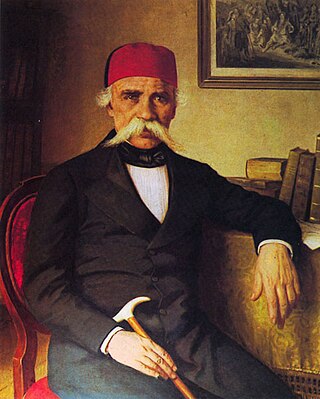 42
Vuk Stefanović Karadžić was a Serbian philologist, anthropologist and linguist. He was one of the most important reformers of the modern Serbian language. For his collection and preservation of...
42
Vuk Stefanović Karadžić was a Serbian philologist, anthropologist and linguist. He was one of the most important reformers of the modern Serbian language. For his collection and preservation of...
Saint Sava
 39
Saint Sava, known as the Enlightener, was a Serbian prince and Orthodox monk, the first Archbishop of the autocephalous Serbian Church, the founder of Serbian law, and a diplomat. Sava, born as...
39
Saint Sava, known as the Enlightener, was a Serbian prince and Orthodox monk, the first Archbishop of the autocephalous Serbian Church, the founder of Serbian law, and a diplomat. Sava, born as...
Peter I of Serbia
 38
Peter I was King of Serbia from 15 June 1903 to 1 December 1918. On 1 December 1918, he became King of the Serbs, Croats and Slovenes, and he held that title until his death three years later. Since...
38
Peter I was King of Serbia from 15 June 1903 to 1 December 1918. On 1 December 1918, he became King of the Serbs, Croats and Slovenes, and he held that title until his death three years later. Since...
Miloš Obrenović, Prince of Serbia
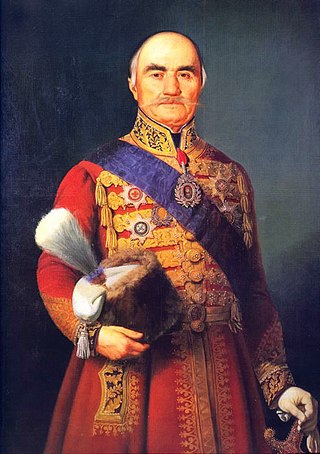 37
Miloš Obrenović born Miloš Teodorović, also known as Miloš the Great was the Prince of Serbia twice, from 1815 to 1839, and from 1858 to 1860. He was an eminent figure of the First Serbian uprising,...
37
Miloš Obrenović born Miloš Teodorović, also known as Miloš the Great was the Prince of Serbia twice, from 1815 to 1839, and from 1858 to 1860. He was an eminent figure of the First Serbian uprising,...
Stefan Dušan
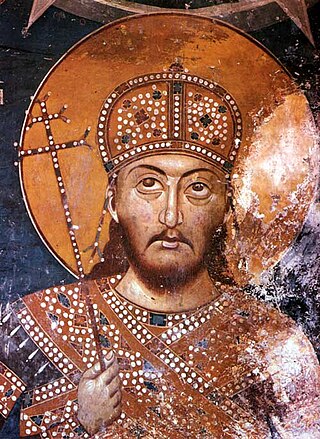 32
Stefan Uroš IV Dušan, also known as Dušan the Mighty, was the king of Serbia from 8 September 1331 and tsar and autocrat of the Serbs, Greeks, Albanians and Bulgarians from 16 April 1346 until his...
32
Stefan Uroš IV Dušan, also known as Dušan the Mighty, was the king of Serbia from 8 September 1331 and tsar and autocrat of the Serbs, Greeks, Albanians and Bulgarians from 16 April 1346 until his...
Lazar of Serbia
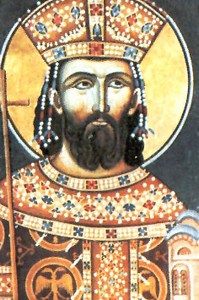 31
Lazar Hrebeljanović was a medieval Serbian ruler who created the largest and most powerful state on the territory of the disintegrated Serbian Empire. Lazar's state, referred to by historians as...
31
Lazar Hrebeljanović was a medieval Serbian ruler who created the largest and most powerful state on the territory of the disintegrated Serbian Empire. Lazar's state, referred to by historians as...
Nikola Tesla
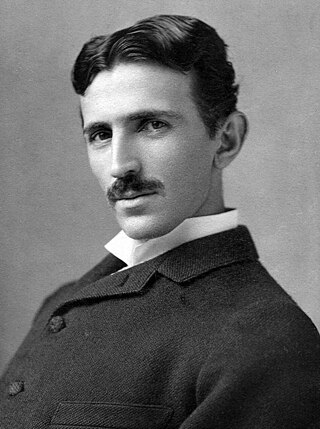 30
Nikola Tesla was a Serbian-American inventor, electrical engineer, mechanical engineer, and futurist. He is known for his contributions to the design of the modern alternating current (AC)...
30
Nikola Tesla was a Serbian-American inventor, electrical engineer, mechanical engineer, and futurist. He is known for his contributions to the design of the modern alternating current (AC)...
Žarko Zrenjanin
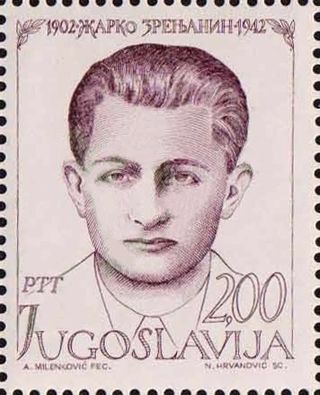 29
Žarko Zrenjanin "Uča" was a Yugoslav partisan and National Hero of Yugoslavia. The city of Zrenjanin, in Serbia, is named after him, since 1946.
29
Žarko Zrenjanin "Uča" was a Yugoslav partisan and National Hero of Yugoslavia. The city of Zrenjanin, in Serbia, is named after him, since 1946.
Živojin Mišić
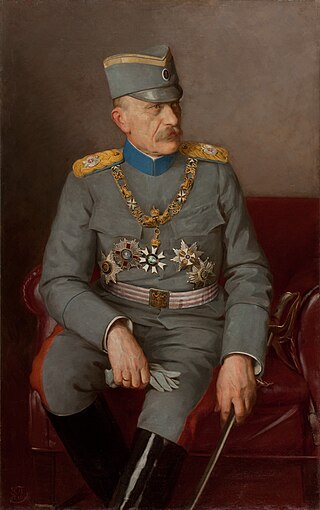 26
Živojin Mišić was a field marshal who participated in all of Serbia's wars from 1876 to 1918. He directly commanded the First Serbian army in the Battle of Kolubara and in breach of the Thessaloniki...
26
Živojin Mišić was a field marshal who participated in all of Serbia's wars from 1876 to 1918. He directly commanded the First Serbian army in the Battle of Kolubara and in breach of the Thessaloniki...
Branko Radičević
 21
Aleksije "Branko" Radičević was a Serbian poet who wrote in the period of Romanticism.
21
Aleksije "Branko" Radičević was a Serbian poet who wrote in the period of Romanticism.
Nikola Pašić
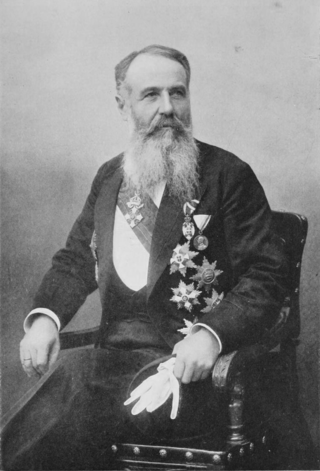 20
Nikola Pašić was a Serbian and Yugoslav politician and diplomat. During his political career, which spanned almost five decades, he served five times as prime minister of Serbia and three times as...
20
Nikola Pašić was a Serbian and Yugoslav politician and diplomat. During his political career, which spanned almost five decades, he served five times as prime minister of Serbia and three times as...
Radomir Putnik
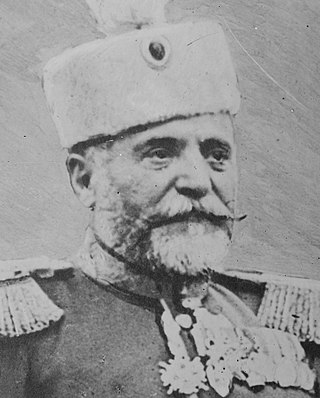 20
Radomir Putnik was the first Serbian Field Marshal and Chief of the General Staff of the Serbian army in the Balkan Wars and in the First World War. He served in every war in which Serbia fought from...
20
Radomir Putnik was the first Serbian Field Marshal and Chief of the General Staff of the Serbian army in the Balkan Wars and in the First World War. He served in every war in which Serbia fought from...
Stepa Stepanović
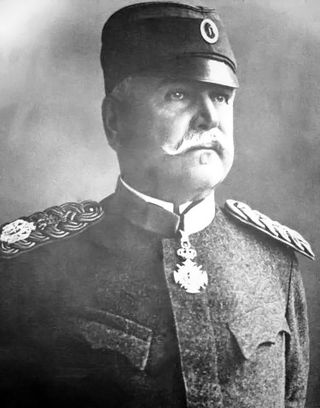 19
Stepan "Stepa" Stepanović was a Serbian military commander who fought in the Serbo-Turkish War, the Serbo-Bulgarian War, the First Balkan War, the Second Balkan War and World War I. Having joined the...
19
Stepan "Stepa" Stepanović was a Serbian military commander who fought in the Serbo-Turkish War, the Serbo-Bulgarian War, the First Balkan War, the Second Balkan War and World War I. Having joined the...
Dimitrije Tucović
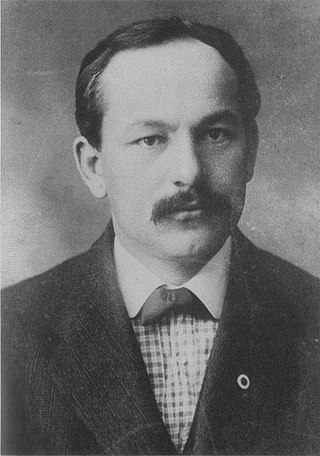 17
Dimitrije "Mita" Tucović was a Serbian theorist of the socialist movement, politician, writer and publisher. He was founder of the Serbian Social Democratic Party.
17
Dimitrije "Mita" Tucović was a Serbian theorist of the socialist movement, politician, writer and publisher. He was founder of the Serbian Social Democratic Party.
Hajduk Veljko
 17
Veljko Petrović, known simply as Hajduk Veljko, was one of the vojvodas of the Serbian Revolutionary forces in the First Serbian Uprising against the Ottoman Empire, in charge of the Negotin area. He...
17
Veljko Petrović, known simply as Hajduk Veljko, was one of the vojvodas of the Serbian Revolutionary forces in the First Serbian Uprising against the Ottoman Empire, in charge of the Negotin area. He...
Sava Kovačević
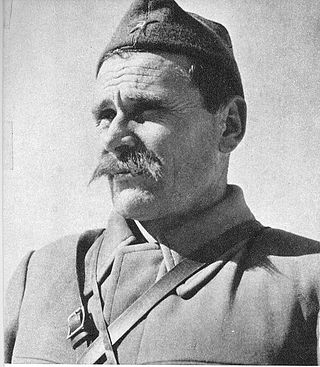 15
Sava Kovačević was a Yugoslav Partisan divisional commander during World War II, and one of the heroes of the communist Partisan movement.
15
Sava Kovačević was a Yugoslav Partisan divisional commander during World War II, and one of the heroes of the communist Partisan movement.
Svetozar Marković
 15
Svetozar Marković was a Serbian political activist, literary critic and socialist philosopher. He developed an activistic anthropological philosophy with a definite program of social change. He was...
15
Svetozar Marković was a Serbian political activist, literary critic and socialist philosopher. He developed an activistic anthropological philosophy with a definite program of social change. He was...
Moša Pijade
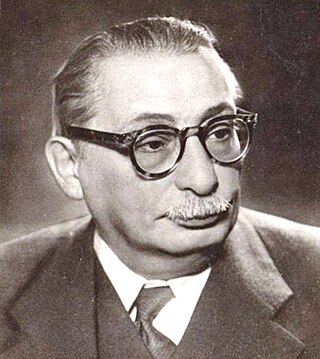 13
Moša Pijade, was a Serbian and Yugoslav painter, journalist, Communist Party politician, World War II participant, and a close collaborator of Josip Broz Tito. He was the full member of the Serbian...
13
Moša Pijade, was a Serbian and Yugoslav painter, journalist, Communist Party politician, World War II participant, and a close collaborator of Josip Broz Tito. He was the full member of the Serbian...
Maxim Gorky
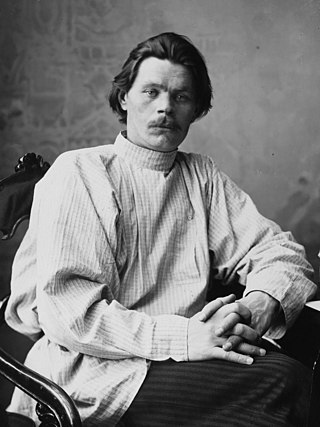 12
Alexei Maximovich Peshkov, popularly known as Maxim Gorky, was a Russian and Soviet writer and socialism proponent. He was nominated five times for the Nobel Prize in Literature. Before his success...
12
Alexei Maximovich Peshkov, popularly known as Maxim Gorky, was a Russian and Soviet writer and socialism proponent. He was nominated five times for the Nobel Prize in Literature. Before his success...
Miloš Obilić
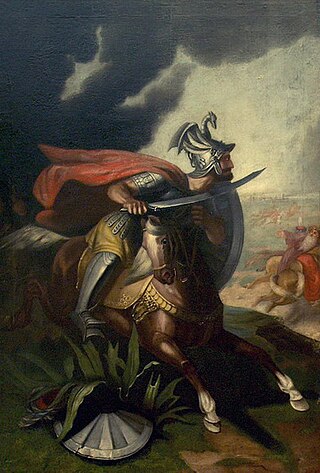 11
Miloš Obilić was a legendary Serbian knight who is reputed to have been in the service of Prince Lazar during the Ottoman invasion of Serbia in the late 14th century. He is not mentioned in...
11
Miloš Obilić was a legendary Serbian knight who is reputed to have been in the service of Prince Lazar during the Ottoman invasion of Serbia in the late 14th century. He is not mentioned in...
Ivo Lola Ribar
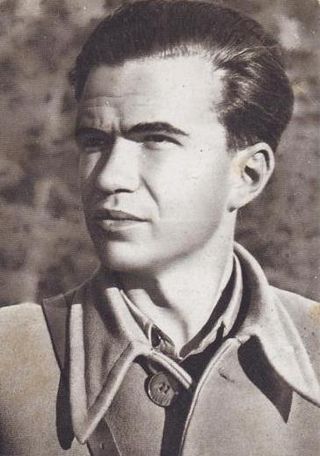 11
Ivan Ribar, known as Ivo Lola or Ivo Lolo, was a Yugoslav communist politician and military leader of Croatian descent. In the 1930s, he became one of the closest associates of Josip Broz Tito,...
11
Ivan Ribar, known as Ivo Lola or Ivo Lolo, was a Yugoslav communist politician and military leader of Croatian descent. In the 1930s, he became one of the closest associates of Josip Broz Tito,...
Dositej Obradović
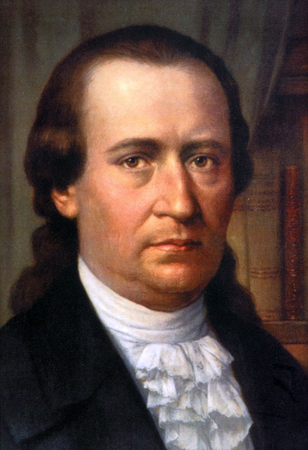 10
Dositej Obradović was a Serbian writer, biographer, diarist, philosopher, pedagogue, educational reformer, linguist, polyglot and the first minister of education of Serbia. An influential protagonist...
10
Dositej Obradović was a Serbian writer, biographer, diarist, philosopher, pedagogue, educational reformer, linguist, polyglot and the first minister of education of Serbia. An influential protagonist...
Gavrilo Princip
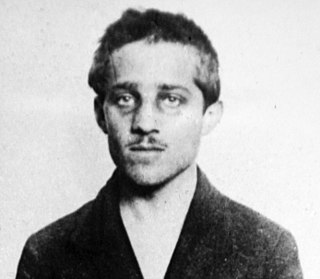 10
Gavrilo Princip was a Bosnian Serb student who assassinated Archduke Franz Ferdinand, heir presumptive to the throne of Austria-Hungary, and his wife Sophie, Duchess von Hohenberg, in Sarajevo on 28...
10
Gavrilo Princip was a Bosnian Serb student who assassinated Archduke Franz Ferdinand, heir presumptive to the throne of Austria-Hungary, and his wife Sophie, Duchess von Hohenberg, in Sarajevo on 28...
Alexander I of Serbia
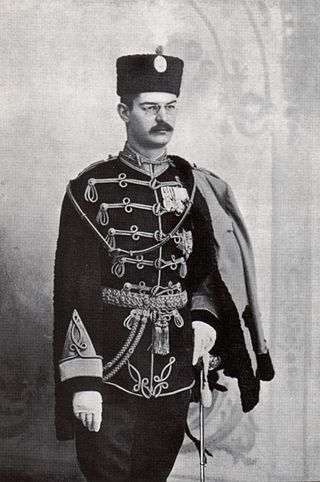 10
Alexander I reigned as the king of Serbia from 1889 to 1903 when he and his wife, Draga Mašin, were assassinated by a group of Royal Serbian Army officers, led by Captain Dragutin Dimitrijević.
10
Alexander I reigned as the king of Serbia from 1889 to 1903 when he and his wife, Draga Mašin, were assassinated by a group of Royal Serbian Army officers, led by Captain Dragutin Dimitrijević.
Ivo Andrić
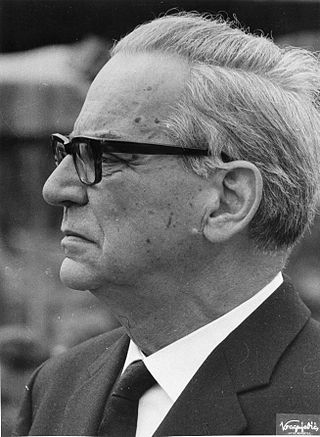 9
Ivo Andrić was a Yugoslav novelist, poet and short story writer who won the Nobel Prize in Literature in 1961. His writings dealt mainly with life in his native Bosnia under Ottoman rule.
9
Ivo Andrić was a Yugoslav novelist, poet and short story writer who won the Nobel Prize in Literature in 1961. His writings dealt mainly with life in his native Bosnia under Ottoman rule.
Mihailo Obrenović, Prince of Serbia
 9
Mihailo Obrenović was the ruling Prince of Serbia from 1839 to 1842 and again from 1860 to 1868.
9
Mihailo Obrenović was the ruling Prince of Serbia from 1839 to 1842 and again from 1860 to 1868.
Đura Jakšić
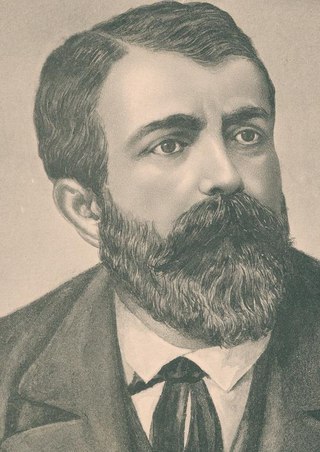 9
Georgije "Đura" Jakšić was a Serbian poet, painter, writer, dramatist and bohemian.
9
Georgije "Đura" Jakšić was a Serbian poet, painter, writer, dramatist and bohemian.
Jugović brothers
 9
The Jugovic brothers, or Nine Jugović, commonly known as the Jugovići, the nine sons of Jug Bogdan, are popular mythological characters of Serbian epic poetry. In poems, the Jugović brothers and...
9
The Jugovic brothers, or Nine Jugović, commonly known as the Jugovići, the nine sons of Jug Bogdan, are popular mythological characters of Serbian epic poetry. In poems, the Jugović brothers and...
Miloš Crnjanski
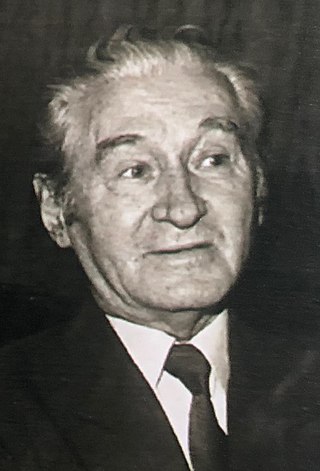 9
Miloš Crnjanski was a Serbian writer and poet of the expressionist wing of Serbian modernism, author, and a diplomat.
9
Miloš Crnjanski was a Serbian writer and poet of the expressionist wing of Serbian modernism, author, and a diplomat.
Veljko Vlahović
 8
Veljko Vlahović was a Montenegrin politician and career army officer. He was one of the more prominent members of the Montenegrin branch of the Yugoslav Communist Party from 1935 which established...
8
Veljko Vlahović was a Montenegrin politician and career army officer. He was one of the more prominent members of the Montenegrin branch of the Yugoslav Communist Party from 1935 which established...
Zoran Đinđić
 8
Zoran Đinđić was a Serbian politician and philosopher who served as the prime minister of Serbia from 2001 until his assassination in 2003. He was the mayor of Belgrade in 1997. Đinđić was a...
8
Zoran Đinđić was a Serbian politician and philosopher who served as the prime minister of Serbia from 2001 until his assassination in 2003. He was the mayor of Belgrade in 1997. Đinđić was a...
Princess Milica of Serbia
 8
Princess Milica Hrebeljanović née Nemanjić also known as Empress (Tsaritsa) Milica, was a royal consort of Serbia by marriage to Prince Lazar who fell in the Battle of Kosovo. After her husband's...
8
Princess Milica Hrebeljanović née Nemanjić also known as Empress (Tsaritsa) Milica, was a royal consort of Serbia by marriage to Prince Lazar who fell in the Battle of Kosovo. After her husband's...
Milan I of Serbia
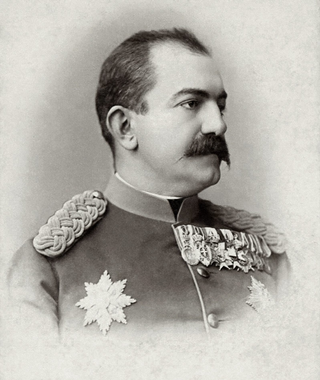 8
Milan Obrenović reigned as the prince of Serbia from 1868 to 1882 and subsequently as king from 1882 to 1889. Milan I unexpectedly abdicated in favor of his son, Alexander I of Serbia, in 1889.
8
Milan Obrenović reigned as the prince of Serbia from 1868 to 1882 and subsequently as king from 1882 to 1889. Milan I unexpectedly abdicated in favor of his son, Alexander I of Serbia, in 1889.
Sándor Petőfi
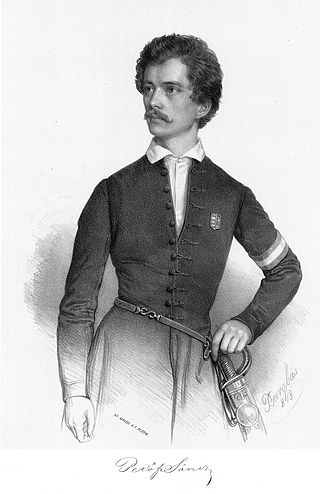 8
Sándor Petőfi was a Hungarian poet and liberal revolutionary. He is considered Hungary's national poet, and was one of the key figures of the Hungarian Revolution of 1848. He is the author of the...
8
Sándor Petőfi was a Hungarian poet and liberal revolutionary. He is considered Hungary's national poet, and was one of the key figures of the Hungarian Revolution of 1848. He is the author of the...
Vratko Nemanjić
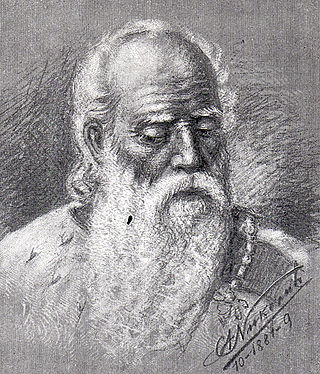 8
Vratko Nemanjić was a Serbian noble, father of Prince Lazar's spouse Milica. Serbian epic poetry identifies him with Jug Bogdan or Ljutica Bogdan, a mythical hero in the Battle of Kosovo.
8
Vratko Nemanjić was a Serbian noble, father of Prince Lazar's spouse Milica. Serbian epic poetry identifies him with Jug Bogdan or Ljutica Bogdan, a mythical hero in the Battle of Kosovo.
Laza Kostić
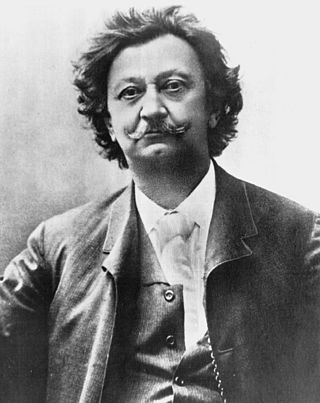 8
Lazar Kostić was a Serbian poet, prose writer, lawyer, aesthetician, journalist, publicist, and politician who is considered to be one of the greatest minds of Serbian literature. Kostić wrote around...
8
Lazar Kostić was a Serbian poet, prose writer, lawyer, aesthetician, journalist, publicist, and politician who is considered to be one of the greatest minds of Serbian literature. Kostić wrote around...
Borisav Stanković
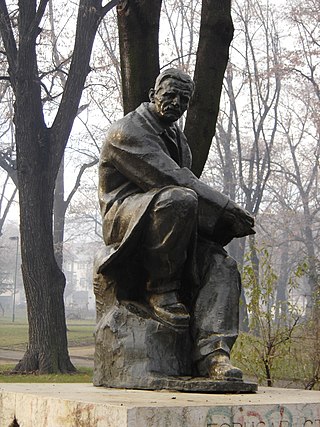 7
Borisav "Bora" Stanković was a Serbian writer belonging to the school of realism. His novels and short stories depict the life of people from South Serbia. He belongs to an exceptional group of...
7
Borisav "Bora" Stanković was a Serbian writer belonging to the school of realism. His novels and short stories depict the life of people from South Serbia. He belongs to an exceptional group of...
Strahinja Banović
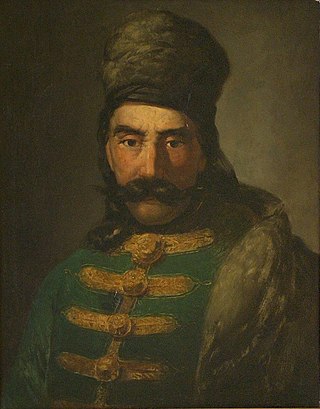 7
Strahinja Banović or Strahinjić Ban is the name of the nobleman and knight depicted in the Serbian epic poem of the same title. It is unsure whether or not he existed; however, some historians...
7
Strahinja Banović or Strahinjić Ban is the name of the nobleman and knight depicted in the Serbian epic poem of the same title. It is unsure whether or not he existed; however, some historians...
Janko Veselinović (writer)
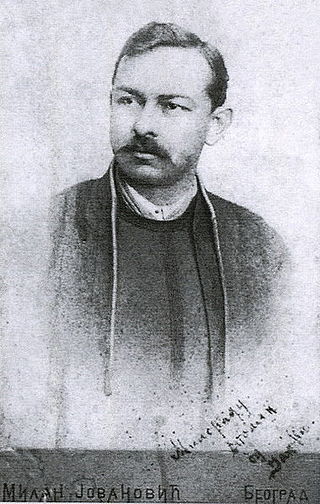 7
Janko Veselinović was a Serbian writer.
7
Janko Veselinović was a Serbian writer.
Jovan Cvijić
 7
Jovan Cvijić was a Serbian geographer and ethnologist, president of the Serbian Royal Academy of Sciences and rector of the University of Belgrade. Cvijić is considered the founder of geography in...
7
Jovan Cvijić was a Serbian geographer and ethnologist, president of the Serbian Royal Academy of Sciences and rector of the University of Belgrade. Cvijić is considered the founder of geography in...
Petar Drapšin
 7
Petar Drapšin was a Yugoslav Partisan commander.
7
Petar Drapšin was a Yugoslav Partisan commander.
Stefan Lazarević
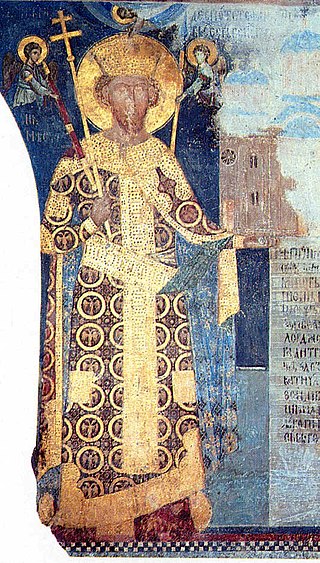 7
Stefan Lazarević, also known as Stefan the Tall, was a Serbian ruler as prince (1389–1402) and despot (1402–1427). He was also a diplomat, legislator, ktetor, patron of the arts, poet and one of the...
7
Stefan Lazarević, also known as Stefan the Tall, was a Serbian ruler as prince (1389–1402) and despot (1402–1427). He was also a diplomat, legislator, ktetor, patron of the arts, poet and one of the...
Svetozar Miletić
 7
Svetozar Miletić was a Serbian lawyer, journalist, author and politician who served as the mayor of Novi Sad between 1861 and 1862 and again from 1867 to 1868.
7
Svetozar Miletić was a Serbian lawyer, journalist, author and politician who served as the mayor of Novi Sad between 1861 and 1862 and again from 1867 to 1868.
Desanka Maksimović
 7
Desanka Maksimović was a Serbian poet, writer and translator. Her first works were published in the literary journal Misao in 1920, while she was studying at the University of Belgrade. Within a few...
7
Desanka Maksimović was a Serbian poet, writer and translator. Her first works were published in the literary journal Misao in 1920, while she was studying at the University of Belgrade. Within a few...
Petar Kočić
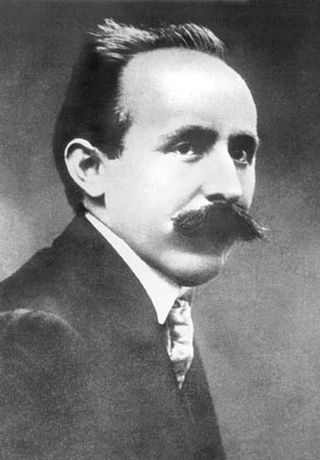 7
Petar Kočić was a Bosnian Serb writer, activist and politician. Born in rural northwestern Bosnia in the final days of Ottoman rule, Kočić began writing around the turn of the twentieth century,...
7
Petar Kočić was a Bosnian Serb writer, activist and politician. Born in rural northwestern Bosnia in the final days of Ottoman rule, Kočić began writing around the turn of the twentieth century,...
Boris Kidrič
 7
Boris Kidrič was a Slovene and Yugoslav politician and revolutionary who was one of the chief organizers of the Slovene Partisans, the Slovene resistance against occupation by Nazi Germany and...
7
Boris Kidrič was a Slovene and Yugoslav politician and revolutionary who was one of the chief organizers of the Slovene Partisans, the Slovene resistance against occupation by Nazi Germany and...
Vojislav Ilić Mlađi
 6
Vojislav Ilić Mlađi was a Serbian writer and poet.
6
Vojislav Ilić Mlađi was a Serbian writer and poet.
Marko Orešković
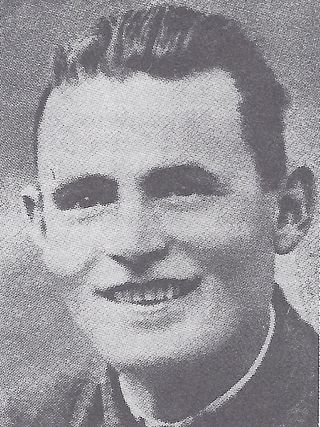 6
Marko Orešković was a Croatian and Yugoslav Partisan commander. He was also known by his nickname Krntija.
6
Marko Orešković was a Croatian and Yugoslav Partisan commander. He was also known by his nickname Krntija.
Ivan Milutinović
 6
Ivan Milutinović was a Yugoslav Partisan general and an eminent military commander who participated in World War II.
6
Ivan Milutinović was a Yugoslav Partisan general and an eminent military commander who participated in World War II.
Vasa Čarapić
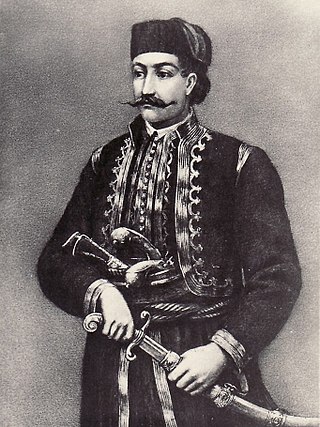 6
Vasilije "Vasa" Čarapić, known as the Dragon from Avala and Vasso Tscharapitsch (German), was a Serbian voivode that participated in the First Serbian Uprising of the Serbian Revolution against the...
6
Vasilije "Vasa" Čarapić, known as the Dragon from Avala and Vasso Tscharapitsch (German), was a Serbian voivode that participated in the First Serbian Uprising of the Serbian Revolution against the...
Stefan the First-Crowned
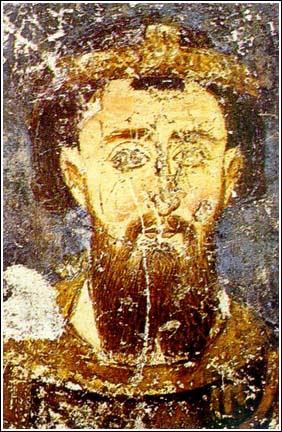 6
Stefan Nemanjić, known as Stefan the First-Crowned, was the Grand Prince of Serbia from 1196 and the King of Serbia from 1217 until his death in 1228. He was the first Serbian king by Nemanjić...
6
Stefan Nemanjić, known as Stefan the First-Crowned, was the Grand Prince of Serbia from 1196 and the King of Serbia from 1217 until his death in 1228. He was the first Serbian king by Nemanjić...
Maria of Yugoslavia
 6
Maria, known in Serbian as Marija Karađorđević, was Queen of the Serbs, Croats and Slovenes from 1922 to 1929 and Queen of Yugoslavia from 1929 to 1934 as the wife of King Alexander I. She was the...
6
Maria, known in Serbian as Marija Karađorđević, was Queen of the Serbs, Croats and Slovenes from 1922 to 1929 and Queen of Yugoslavia from 1929 to 1934 as the wife of King Alexander I. She was the...
Jovan Dučić
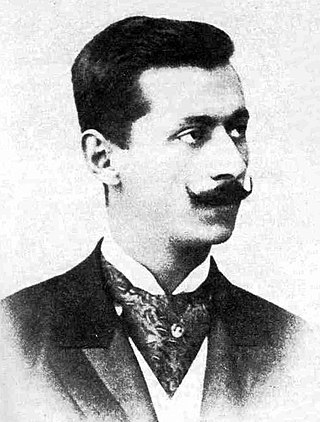 6
Jovan Dučić was a Serb poet-diplomat and academic.
6
Jovan Dučić was a Serb poet-diplomat and academic.
Mihajlo Pupin
 6
Mihajlo Idvorski Pupin, also known as Michael Pupin, was a Serbian physicist, physical chemist and philanthropist based in the United States.
6
Mihajlo Idvorski Pupin, also known as Michael Pupin, was a Serbian physicist, physical chemist and philanthropist based in the United States.
Stevan Sinđelić
 6
Stevan Sinđelić was a Serbian revolutionary commander in Resava, who fought during the First Serbian Uprising (1804–1813) against Ottoman rule. As the commander of the Resava Brigade, he fought in...
6
Stevan Sinđelić was a Serbian revolutionary commander in Resava, who fought during the First Serbian Uprising (1804–1813) against Ottoman rule. As the commander of the Resava Brigade, he fought in...
Tanasko Rajić
 6
Atanasije Rajić, known by his nickname Tanasko (Танаско), was a Serbian vojvoda (commander) and revolutionary, the barjaktar (flag-bearer) in the First Serbian Uprising led by Karađorđe against the...
6
Atanasije Rajić, known by his nickname Tanasko (Танаско), was a Serbian vojvoda (commander) and revolutionary, the barjaktar (flag-bearer) in the First Serbian Uprising led by Karađorđe against the...
Starina Novak
 6
Starina Novak was a Serb hajduk who distinguished himself in many battles against the Ottoman Empire. He is considered a national hero by both the Serbs and the Romanians.
6
Starina Novak was a Serb hajduk who distinguished himself in many battles against the Ottoman Empire. He is considered a national hero by both the Serbs and the Romanians.
Đuro Đaković
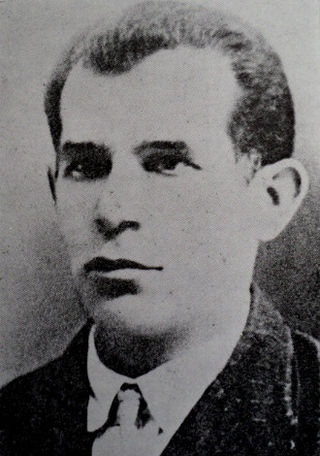 5
Đuro Đaković was a Yugoslav metal worker, communist and revolutionary. Đaković was the organizational secretary of the Central Committee of the Communist Party of Yugoslavia, from April 1928 to April...
5
Đuro Đaković was a Yugoslav metal worker, communist and revolutionary. Đaković was the organizational secretary of the Central Committee of the Communist Party of Yugoslavia, from April 1928 to April...
Arsenije III Crnojević
 5
Arsenije III Crnojević was the Archbishop of Peć and Serbian Patriarch from 1674 to his death in 1706. In 1689, during the Habsburg-Ottoman War (1683–1699), he sided with Habsburgs, upon their...
5
Arsenije III Crnojević was the Archbishop of Peć and Serbian Patriarch from 1674 to his death in 1706. In 1689, during the Habsburg-Ottoman War (1683–1699), he sided with Habsburgs, upon their...
Slobodan Penezić
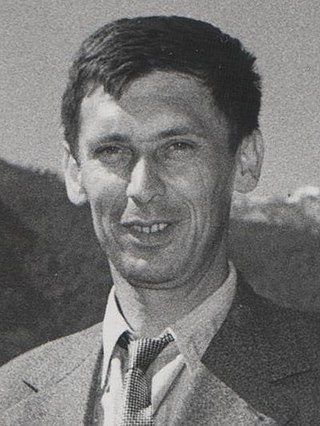 5
Slobodan "Krcun" Penezić was a Yugoslav communist politician who served as Prime Minister and Minister of Internal Affairs of the Socialist Republic of Serbia. During his heyday, he was the Secret...
5
Slobodan "Krcun" Penezić was a Yugoslav communist politician who served as Prime Minister and Minister of Internal Affairs of the Socialist Republic of Serbia. During his heyday, he was the Secret...
Stevan Sremac
 5
Stevan Sremac was a Serbian realist and comedy writer. He is considered one of the best truly humorous Serbian writers.
5
Stevan Sremac was a Serbian realist and comedy writer. He is considered one of the best truly humorous Serbian writers.
Prince Marko
 5
Marko Mrnjavčević was the de jure Serbian king from 1371 to 1395, while he was the de facto ruler of territory in western Macedonia centered on the town of Prilep. He is known as Prince Marko and...
5
Marko Mrnjavčević was the de jure Serbian king from 1371 to 1395, while he was the de facto ruler of territory in western Macedonia centered on the town of Prilep. He is known as Prince Marko and...
Milan Rakić
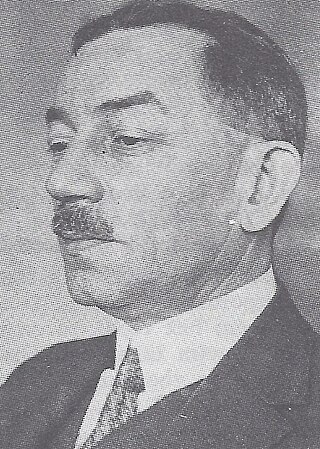 5
Milan Rakić was a Serbian poet-diplomat and academic.
5
Milan Rakić was a Serbian poet-diplomat and academic.
Branko Ćopić
 5
Branko Ćopić was a Yugoslav writer. He wrote poetry, short stories and novels, and became famous for his stories for children and young adults, often set during World War II in revolutionary...
5
Branko Ćopić was a Yugoslav writer. He wrote poetry, short stories and novels, and became famous for his stories for children and young adults, often set during World War II in revolutionary...
Pavle, Serbian Patriarch
 5
Pavle was the patriarch of the Serbian Orthodox Church from 1990 to his death. His full title was His Holiness the Archbishop of Peć, Metropolitan of Belgrade and Karlovci, and Serbian Patriarch...
5
Pavle was the patriarch of the Serbian Orthodox Church from 1990 to his death. His full title was His Holiness the Archbishop of Peć, Metropolitan of Belgrade and Karlovci, and Serbian Patriarch...
Branislav Nušić
 5
Branislav Nušić was a Serbian playwright, satirist, essayist, novelist and founder of modern rhetoric in Serbia. He also worked as a journalist and a civil servant.
5
Branislav Nušić was a Serbian playwright, satirist, essayist, novelist and founder of modern rhetoric in Serbia. He also worked as a journalist and a civil servant.
Josif Pančić
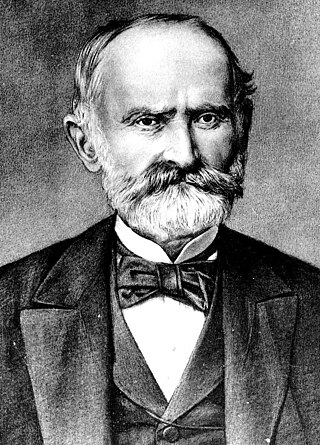 5
Josif Pančić was a Serbian botanist, a doctor of medicine, a lecturer at the Great School, and the first president of the Serbian Royal Academy. He extensively documented the flora of Serbia, and is...
5
Josif Pančić was a Serbian botanist, a doctor of medicine, a lecturer at the Great School, and the first president of the Serbian Royal Academy. He extensively documented the flora of Serbia, and is...
Uroš Predić
 5
Uroš Predić was a Serbian Realist painter. Along with Paja Jovanović and Đorđe Krstić, he is considered the most important Serbian painter of realism. Predić is best remembered for his early works,...
5
Uroš Predić was a Serbian Realist painter. Along with Paja Jovanović and Đorđe Krstić, he is considered the most important Serbian painter of realism. Predić is best remembered for his early works,...
Nada Dimić
 4
Nada Dimić was a Yugoslav Partisan who died in World War II and was proclaimed a People's Hero of Yugoslavia.
4
Nada Dimić was a Yugoslav Partisan who died in World War II and was proclaimed a People's Hero of Yugoslavia.
Jevrem Obrenović
 4
Prince Jevrem Teodorović Obrenović was a Serbian politician and revolutionary. He was the younger brother of Prince Miloš Obrenović I of Serbia, the founder of the Obrenović dynasty.
4
Prince Jevrem Teodorović Obrenović was a Serbian politician and revolutionary. He was the younger brother of Prince Miloš Obrenović I of Serbia, the founder of the Obrenović dynasty.
Cyril and Methodius
 4
Cyril and Methodius (815–885) were brothers, Byzantine Christian theologians and missionaries. For their work evangelizing the Slavs, they are known as the "Apostles to the Slavs".
4
Cyril and Methodius (815–885) were brothers, Byzantine Christian theologians and missionaries. For their work evangelizing the Slavs, they are known as the "Apostles to the Slavs".
Milentije Popović
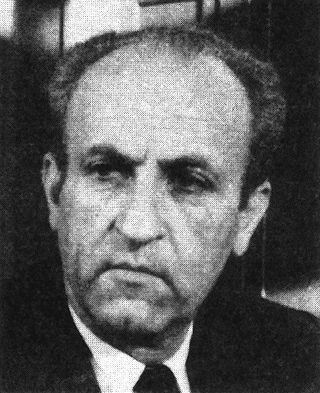 4
Milentije Popović was a member of Communist Party of Yugoslavia (KPJ) since 1939. During World War II he held various Party and administrative positions. After the war, he became the Minister of...
4
Milentije Popović was a member of Communist Party of Yugoslavia (KPJ) since 1939. During World War II he held various Party and administrative positions. After the war, he became the Minister of...
Matija Gubec
 4
Matija Gubec, also known as Ambroz Gubec, was a Croatian revolutionary, and a leader of the Croatian–Slovene Peasant Revolt of 1573. He was part of the court of three people that governed the rebels.
4
Matija Gubec, also known as Ambroz Gubec, was a Croatian revolutionary, and a leader of the Croatian–Slovene Peasant Revolt of 1573. He was part of the court of three people that governed the rebels.
Stanoje Glavaš
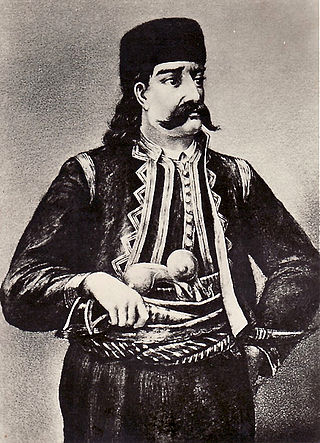 4
Stanoje Stamatović, known as Stanoje Glavaš was a Serbian hajduk and hero in the First Serbian Uprising.
4
Stanoje Stamatović, known as Stanoje Glavaš was a Serbian hajduk and hero in the First Serbian Uprising.
Fyodor Tolbukhin
 4
Fyodor Ivanovich Tolbukhin was a Soviet military commander and Marshal of the Soviet Union. He is regarded as one of the finest Soviet generals of World War II.
4
Fyodor Ivanovich Tolbukhin was a Soviet military commander and Marshal of the Soviet Union. He is regarded as one of the finest Soviet generals of World War II.
Mika Antić
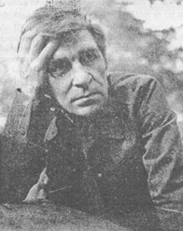 4
Miroslav "Mika" Antić was a Serbian poet, film director, journalist and painter. He was a major figure of the Yugoslav Black Wave. He had six children.
4
Miroslav "Mika" Antić was a Serbian poet, film director, journalist and painter. He was a major figure of the Yugoslav Black Wave. He had six children.
Вељко Дугошевић
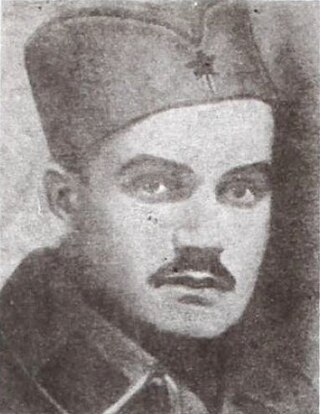 4
Вељко Дугошевић био је учитељ, учесник Народноослободилачке борбе и народни херој Југославије.
4
Вељко Дугошевић био је учитељ, учесник Народноослободилачке борбе и народни херој Југославије.
Đuro Daničić
 4
Đuro Daničić, born Đorđe Popović and also known as Đura Daničić, was a Serbian philologist, translator, linguistic historian and lexicographer. He was a prolific scholar at the Belgrade Lyceum.
4
Đuro Daničić, born Đorđe Popović and also known as Đura Daničić, was a Serbian philologist, translator, linguistic historian and lexicographer. He was a prolific scholar at the Belgrade Lyceum.
Vasa Pelagić
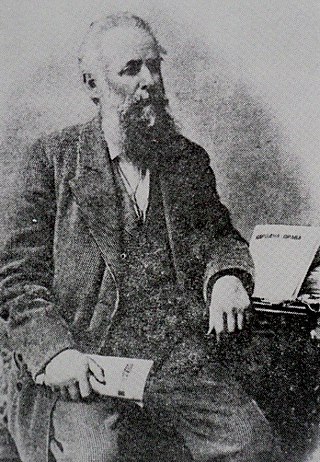 4
Vasilije "Vasa" Pelagić was a Bosnian Serb writer, physician, educator, clergyman, nationalist and a proponent of utopian socialism among the Serbs in the second half of the nineteenth century. Today...
4
Vasilije "Vasa" Pelagić was a Bosnian Serb writer, physician, educator, clergyman, nationalist and a proponent of utopian socialism among the Serbs in the second half of the nineteenth century. Today...
Petar Bojović
 4
Petar Bojović was a Serbian and Yugoslav military commander who fought in the Serbo-Turkish War, the Serbo-Bulgarian War, the First Balkan War, the Second Balkan War, and World War I. He was briefly...
4
Petar Bojović was a Serbian and Yugoslav military commander who fought in the Serbo-Turkish War, the Serbo-Bulgarian War, the First Balkan War, the Second Balkan War, and World War I. He was briefly...
Radivoj Korać
 4
Radivoj Korać was a Yugoslav professional basketball player. He represented the Yugoslavia national basketball team internationally. Korać is well-known for holding the EuroLeague's all-time...
4
Radivoj Korać was a Yugoslav professional basketball player. He represented the Yugoslavia national basketball team internationally. Korać is well-known for holding the EuroLeague's all-time...
Branko Krsmanović
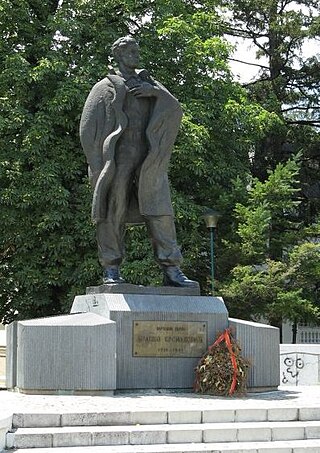 4
Branko Krsmanović (1915–1941) was a participant in the Spanish Civil War and the National Liberation struggle and national hero of Yugoslavia.
4
Branko Krsmanović (1915–1941) was a participant in the Spanish Civil War and the National Liberation struggle and national hero of Yugoslavia.
Jovan Popović (writer)
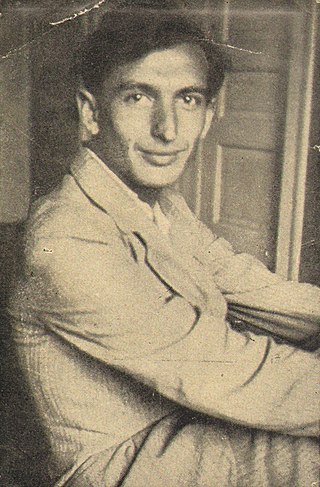 4
Jovan Popović was a Serbian writer and academic.
4
Jovan Popović was a Serbian writer and academic.
Nikolaj Velimirović
 4
Nikolaj Velimirović was bishop of the eparchies of Ohrid and Žiča (1920–1956) in the Serbian Orthodox Church. An influential theological writer and a highly gifted orator, he was often referred to as...
4
Nikolaj Velimirović was bishop of the eparchies of Ohrid and Žiča (1920–1956) in the Serbian Orthodox Church. An influential theological writer and a highly gifted orator, he was often referred to as...
Milutin Milanković
 4
Milutin Milanković was a Serbian mathematician, astronomer, climatologist, geophysicist, civil engineer and popularizer of science.
4
Milutin Milanković was a Serbian mathematician, astronomer, climatologist, geophysicist, civil engineer and popularizer of science.
Roger Joseph Boscovich
 4
Roger Joseph Boscovich was a physicist, astronomer, mathematician, philosopher, diplomat, poet, theologian, Jesuit priest, and a polymath from the Republic of Ragusa. He studied and lived in Italy...
4
Roger Joseph Boscovich was a physicist, astronomer, mathematician, philosopher, diplomat, poet, theologian, Jesuit priest, and a polymath from the Republic of Ragusa. He studied and lived in Italy...
Veselin Masleša
 4
Veselin Masleša was a Yugoslav writer, activist and Partisan.
4
Veselin Masleša was a Yugoslav writer, activist and Partisan.
Stevan Mokranjac
 4
Stevan Stojanović, known as Stevan Mokranjac was a Serbian composer and music educator. Born in Negotin in 1856, Mokranjac studied music in Belgrade, Munich, Rome and Leipzig while in his twenties....
4
Stevan Stojanović, known as Stevan Mokranjac was a Serbian composer and music educator. Born in Negotin in 1856, Mokranjac studied music in Belgrade, Munich, Rome and Leipzig while in his twenties....
Драгиша Мишовић
 4
Драгиша Мишовић био је српски лекар и комунистички револуционар.
4
Драгиша Мишовић био је српски лекар и комунистички револуционар.
Petar Leković
 4
Petar Leković, was a Serbian soldier active in both World War I and World War II. A stonecutter by profession, Leković was declared the first People's Hero of Yugoslavia.
4
Petar Leković, was a Serbian soldier active in both World War I and World War II. A stonecutter by profession, Leković was declared the first People's Hero of Yugoslavia.
Žikica Jovanović Španac
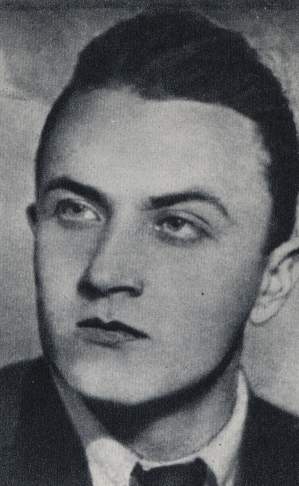 4
Živorad "Žikica" Jovanović, nicknamed Španac was a Yugoslav partisan, Spanish-trained commando and republican volunteer in the Spanish Civil War and is credited for initiating the anti-fascist...
4
Živorad "Žikica" Jovanović, nicknamed Španac was a Yugoslav partisan, Spanish-trained commando and republican volunteer in the Spanish Civil War and is credited for initiating the anti-fascist...
Laza Lazarević
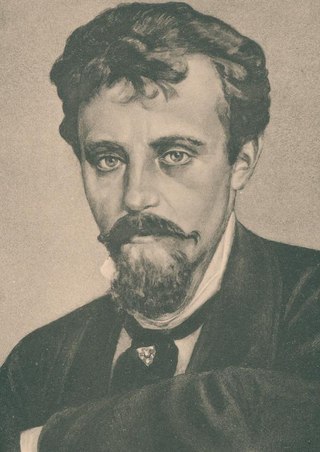 4
Lazar "Laza" Lazarević was a Serbian writer, psychiatrist, and neurologist.
4
Lazar "Laza" Lazarević was a Serbian writer, psychiatrist, and neurologist.
Filip Višnjić
 4
Filip Višnjić was a Serbian epic poet and guslar. His repertoire included 13 original epic poems chronicling the First Serbian Uprising against the Ottoman Empire and four reinterpreted epics from...
4
Filip Višnjić was a Serbian epic poet and guslar. His repertoire included 13 original epic poems chronicling the First Serbian Uprising against the Ottoman Empire and four reinterpreted epics from...
Ivan Goran Kovačić
 3
Ivan Goran Kovačić was a Croatian poet and writer.
3
Ivan Goran Kovačić was a Croatian poet and writer.
Yuri Gagarin
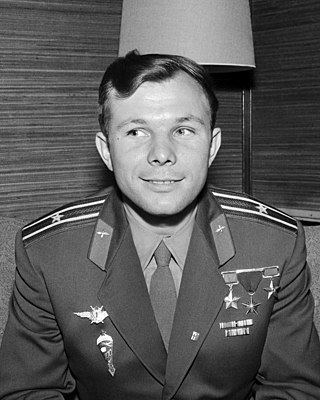 3
Yuri Alekseyevich Gagarin was a Soviet pilot and cosmonaut who, aboard the first successful crewed spaceflight, became the first human to journey into outer space. Travelling on Vostok 1, Gagarin...
3
Yuri Alekseyevich Gagarin was a Soviet pilot and cosmonaut who, aboard the first successful crewed spaceflight, became the first human to journey into outer space. Travelling on Vostok 1, Gagarin...
Radoje Domanović
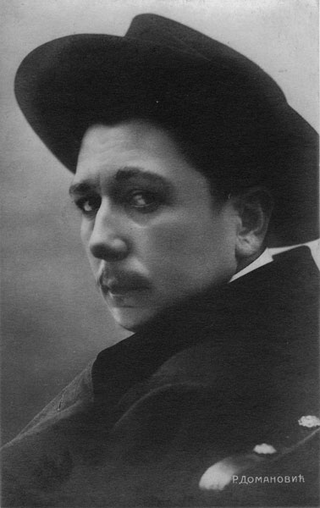 3
Radoje Domanović was a Serbian journalist, writer and teacher, most famous for his satirical short stories. His adult years were a constant fight against tuberculosis. This circumstance of his life,...
3
Radoje Domanović was a Serbian journalist, writer and teacher, most famous for his satirical short stories. His adult years were a constant fight against tuberculosis. This circumstance of his life,...
Vasa Stajić
 3
Vasa Stajić was a Serbian writer and philosopher. He was born in Mokrin in 1878, and died in Novi Sad in 1947 where he spent most of his life. He was secretary of the Serbian Cultural Society from...
3
Vasa Stajić was a Serbian writer and philosopher. He was born in Mokrin in 1878, and died in Novi Sad in 1947 where he spent most of his life. He was secretary of the Serbian Cultural Society from...
Живан Маричић
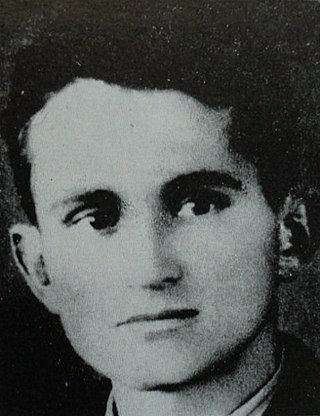 3
Живан Маричић, учесник Народноослободилачке борбе и народни херој Југославије.
3
Живан Маричић, учесник Народноослободилачке борбе и народни херој Југославије.
Браћа Јерковић
 3
Браћа Јерковић — Небојша и Душан су били синови Милана Јерковића, учитеља из сремског села Огара, код Пећинаца и његове супруге Анђелије, који су поред њих имали још петоро деце. Њихов отац је...
3
Браћа Јерковић — Небојша и Душан су били синови Милана Јерковића, учитеља из сремског села Огара, код Пећинаца и његове супруге Анђелије, који су поред њих имали још петоро деце. Њихов отац је...
Aleksa Šantić
Stefan Milutin
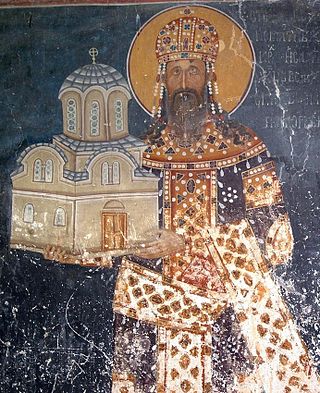 3
Stefan Uroš II Milutin, known as Saint King, was the King of Serbia between 1282–1321, a member of the Nemanjić dynasty. He was one of the most powerful rulers of Serbia in the Middle Ages and one of...
3
Stefan Uroš II Milutin, known as Saint King, was the King of Serbia between 1282–1321, a member of the Nemanjić dynasty. He was one of the most powerful rulers of Serbia in the Middle Ages and one of...
Tosa Apostolovic
 3
Teodor Toša Apostolović was a Serbian merchant and philanthropist.
3
Teodor Toša Apostolović was a Serbian merchant and philanthropist.
Meša Selimović
 3
Mehmed "Meša" Selimović was a Yugoslav writer, whose novel Death and the Dervish is one of the most important literary works in post-World War II Yugoslavia. Some of the main themes in his works are...
3
Mehmed "Meša" Selimović was a Yugoslav writer, whose novel Death and the Dervish is one of the most important literary works in post-World War II Yugoslavia. Some of the main themes in his works are...
Браћа Јовановић
 3
Каменко и Павле Јовановић били су познати и угледни грађани Панчева. Њихова хуманитарна и просветна делатност је огромна, као и борба за права Срба у тадашњој Аустро-Угарској. Међутим, остали су пре...
3
Каменко и Павле Јовановић били су познати и угледни грађани Панчева. Њихова хуманитарна и просветна делатност је огромна, као и борба за права Срба у тадашњој Аустро-Угарској. Међутим, остали су пре...
Sava Šumanović
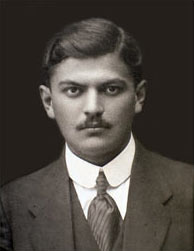 3
Sava Šumanović was a Serbian painter. He is considered to be one of the most important Serbian painters of the 20th century. Šumanović's opus includes around 800 paintings as well as 400 drawings and...
3
Sava Šumanović was a Serbian painter. He is considered to be one of the most important Serbian painters of the 20th century. Šumanović's opus includes around 800 paintings as well as 400 drawings and...
Saint Nicholas
 3
Saint Nicholas of Myra, also known as Nicholas of Bari, was an early Christian bishop of Greek descent from the maritime city of Patara in Anatolia during the time of the Roman Empire. Because of the...
3
Saint Nicholas of Myra, also known as Nicholas of Bari, was an early Christian bishop of Greek descent from the maritime city of Patara in Anatolia during the time of the Roman Empire. Because of the...
Boško Buha
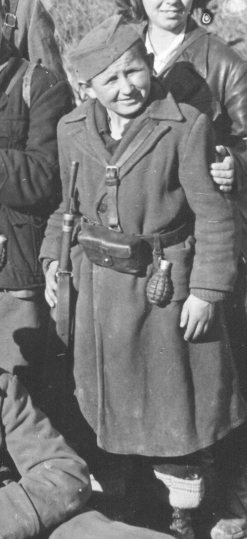 3
Boško Buha was a young Yugoslav Partisan and an honored icon of the Yugoslavian resistance during World War II.
3
Boško Buha was a young Yugoslav Partisan and an honored icon of the Yugoslavian resistance during World War II.
Toma Vučić Perišić
 3
Prince Toma Vučić Perišić was a Serbian politician, military leader during the Serbian Revolution, Freemason and one of the most powerful and influential individuals in Serbia of the 19th century. He...
3
Prince Toma Vučić Perišić was a Serbian politician, military leader during the Serbian Revolution, Freemason and one of the most powerful and influential individuals in Serbia of the 19th century. He...
Ljubomir Nenadović
 3
Ljubomir Nenadović was Serbian writer, poet, translator, diplomat, minister of education and member of the Serbian Royal Academy.
3
Ljubomir Nenadović was Serbian writer, poet, translator, diplomat, minister of education and member of the Serbian Royal Academy.
Vladimir Nazor
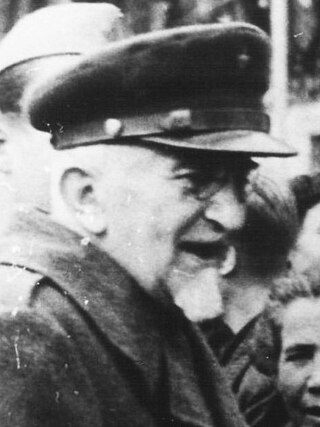 3
Vladimir Nazor was a Croatian poet and politician. During and after World War II in Yugoslavia, he served as the first President of the Presidium of the Croatian Parliament, and first Speaker of the...
3
Vladimir Nazor was a Croatian poet and politician. During and after World War II in Yugoslavia, he served as the first President of the Presidium of the Croatian Parliament, and first Speaker of the...
Matija Nenadović
 3
Matija Nenadović, also known as Prota Mateja, was a Serbian archpriest, writer, and politician who served as the first prime minister of Serbia from 1805 to 1807. He was a notable leader in the First...
3
Matija Nenadović, also known as Prota Mateja, was a Serbian archpriest, writer, and politician who served as the first prime minister of Serbia from 1805 to 1807. He was a notable leader in the First...
Danilo Kiš
 3
Danilo Kiš was a Yugoslav and Serbian novelist, short story writer, essayist and translator. His best known works include Hourglass, A Tomb for Boris Davidovich and The Encyclopedia of the Dead.
3
Danilo Kiš was a Yugoslav and Serbian novelist, short story writer, essayist and translator. His best known works include Hourglass, A Tomb for Boris Davidovich and The Encyclopedia of the Dead.
Соња Маринковић
 3
Софија Соња Маринковић била је револуционарка, учесница Народноослободилачке борбе и народни херој Југославије.
3
Софија Соња Маринковић била је револуционарка, учесница Народноослободилачке борбе и народни херој Југославије.
Endre Ady
 3
Endre Ady was a turn-of-the-century Hungarian poet and journalist. Regarded by many as the greatest Hungarian poet of the 20th century, he was noted for his steadfast belief in social progress and...
3
Endre Ady was a turn-of-the-century Hungarian poet and journalist. Regarded by many as the greatest Hungarian poet of the 20th century, he was noted for his steadfast belief in social progress and...
Milovan Glišić
 3
Milovan Glišić was a Serbian writer, dramatist, translator, and literary theorist. He is sometimes referred to as the Serbian Gogol.
3
Milovan Glišić was a Serbian writer, dramatist, translator, and literary theorist. He is sometimes referred to as the Serbian Gogol.
Душан Јерковић
 3
Душан Јерковић Уча био је учитељ, учесник Народноослободилачке борбе и народни херој Југославије.
3
Душан Јерковић Уча био је учитељ, учесник Народноослободилачке борбе и народни херој Југославије.
Ратомир Јовић
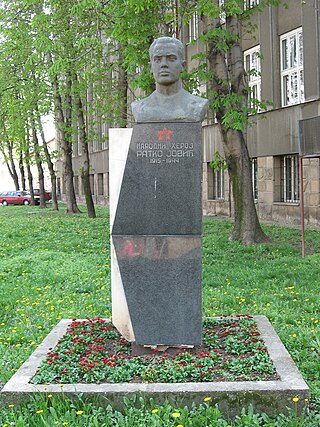 3
Ратомир Ратко Јовић - Душко, учесник Народноослободилачке борбе и народни херој Југославије.
3
Ратомир Ратко Јовић - Душко, учесник Народноослободилачке борбе и народни херој Југославије.
Dragutin Gavrilović
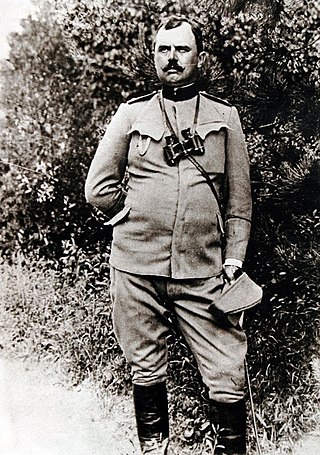 3
Dragutin Gavrilović was a Serbian and Yugoslav military officer, best known for his heroic defense of Belgrade during the First World War.
3
Dragutin Gavrilović was a Serbian and Yugoslav military officer, best known for his heroic defense of Belgrade during the First World War.
Pavle Jurišić Šturm
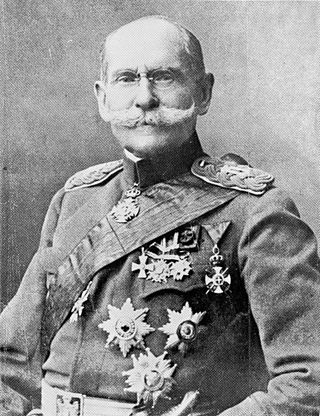 3
Pavle Jurišić Šturm KCMG, born Paulus Eugen Sturm, was a Serbian general of Sorbian origin, best known for commanding the Serbian 3rd Army in World War I.
3
Pavle Jurišić Šturm KCMG, born Paulus Eugen Sturm, was a Serbian general of Sorbian origin, best known for commanding the Serbian 3rd Army in World War I.
Stevan Hristić
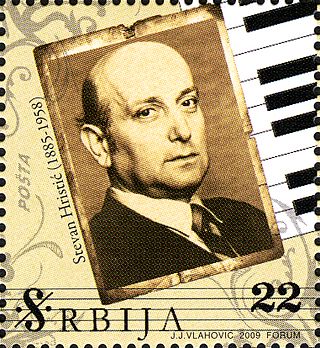 3
Stevan Hristić was Serbian composer, conductor, pedagogue, and music writer. A prominent representative of the late romanticist style in Serbian music of the first half of the 20th century.
3
Stevan Hristić was Serbian composer, conductor, pedagogue, and music writer. A prominent representative of the late romanticist style in Serbian music of the first half of the 20th century.
Pavle Vuisić
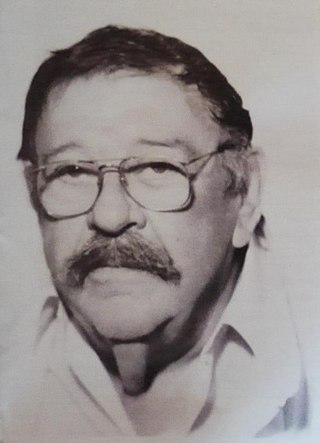 3
Pavle "Paja" Vuisić was a Serbian and Yugoslav actor, known as one of the most recognizable faces of former Yugoslav cinema.
3
Pavle "Paja" Vuisić was a Serbian and Yugoslav actor, known as one of the most recognizable faces of former Yugoslav cinema.
Marija Bursać
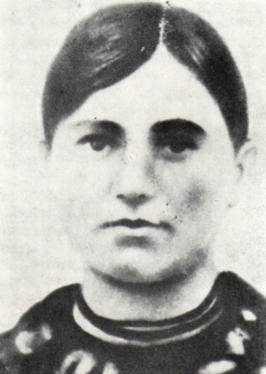 3
Marija Bursać was a member of the Yugoslav Partisans during World War II in Yugoslavia and the first woman proclaimed a People's Hero of Yugoslavia. Bursać was born to a Bosnian Serb farming family...
3
Marija Bursać was a member of the Yugoslav Partisans during World War II in Yugoslavia and the first woman proclaimed a People's Hero of Yugoslavia. Bursać was born to a Bosnian Serb farming family...
Mladen Stojanović
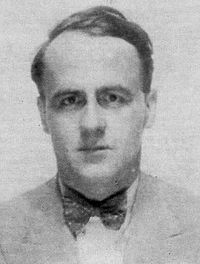 3
Mladen Stojanović was a Bosnian Serb and Yugoslav physician who led a detachment of Partisans on and around Mount Kozara in northwestern Bosnia during World War II in Yugoslavia. He was posthumously...
3
Mladen Stojanović was a Bosnian Serb and Yugoslav physician who led a detachment of Partisans on and around Mount Kozara in northwestern Bosnia during World War II in Yugoslavia. He was posthumously...
Milunka Savić
 3
Milunka Savić CMG was a Serbian war heroine who fought in the Balkan Wars and in World War I. She is the most-decorated female combatant in the recorded history of warfare.
3
Milunka Savić CMG was a Serbian war heroine who fought in the Balkan Wars and in World War I. She is the most-decorated female combatant in the recorded history of warfare.
Joakim Vujić
 3
Joakim Vujić was a Serbian writer, dramatist, actor, traveler and polyglot. He was one of the most accomplished Serbian dramatists and writers of the 18th century, director of Knjaževsko-srpski...
3
Joakim Vujić was a Serbian writer, dramatist, actor, traveler and polyglot. He was one of the most accomplished Serbian dramatists and writers of the 18th century, director of Knjaževsko-srpski...
Kosta Abrašević
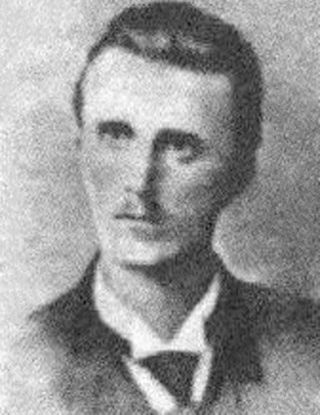 3
Kosta Abrašević or Kosta Abraš was a Serbian poet, progenitor of proletarian poetry in Serbian literature.
3
Kosta Abrašević or Kosta Abraš was a Serbian poet, progenitor of proletarian poetry in Serbian literature.
Mihailo Petrović Alas
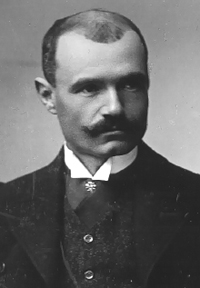 3
Mihailo Petrović Alas, was a Serbian mathematician and inventor. He was also a distinguished professor at Belgrade University, an academic, fisherman, philosopher, writer, publicist, musician,...
3
Mihailo Petrović Alas, was a Serbian mathematician and inventor. He was also a distinguished professor at Belgrade University, an academic, fisherman, philosopher, writer, publicist, musician,...
Радојка Лакић
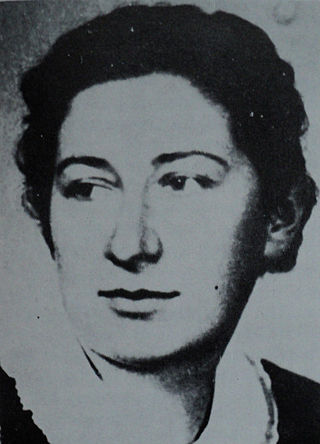 3
Радојка Лакић била је учесница Народноослободилачке борбе и народни херој Југославије.
3
Радојка Лакић била је учесница Народноослободилачке борбе и народни херој Југославије.
Isidora Sekulić
 3
Isidora Sekulić was a Serbian writer, novelist, essayist, polyglot and art critic. She was "the first woman academic in the history of Serbia" after she joined the Serbian Academy of Sciences and...
3
Isidora Sekulić was a Serbian writer, novelist, essayist, polyglot and art critic. She was "the first woman academic in the history of Serbia" after she joined the Serbian Academy of Sciences and...
Nadežda Petrović
 3
Nadežda Petrović was a Serbian painter and one of the women war photography pioneers in the region. Considered Serbia's most famous expressionist and fauvist, she was the most important Serbian...
3
Nadežda Petrović was a Serbian painter and one of the women war photography pioneers in the region. Considered Serbia's most famous expressionist and fauvist, she was the most important Serbian...
Filip Kljajić (Yugoslav Partisan)
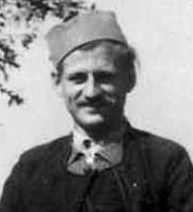 2
Filip "Fića" Kljaić was a Yugoslav Partisan fighter during World War II and political commissar of the 1st Proletarian Brigade. Kljaić was killed during the Battle of Zvornik and posthumously awarded...
2
Filip "Fića" Kljaić was a Yugoslav Partisan fighter during World War II and political commissar of the 1st Proletarian Brigade. Kljaić was killed during the Battle of Zvornik and posthumously awarded...
Natalie of Serbia
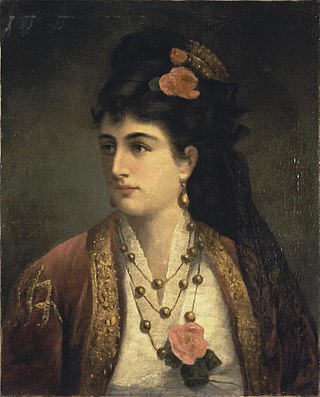 2
Natalija Obrenović, née Keshko, known as Natalie of Serbia, was the Princess of Serbia from 1875 to 1882 and then Queen of Serbia from 1882 to 1889 as the wife of Milan I of Serbia.
2
Natalija Obrenović, née Keshko, known as Natalie of Serbia, was the Princess of Serbia from 1875 to 1882 and then Queen of Serbia from 1882 to 1889 as the wife of Milan I of Serbia.
Aleksa Dundić
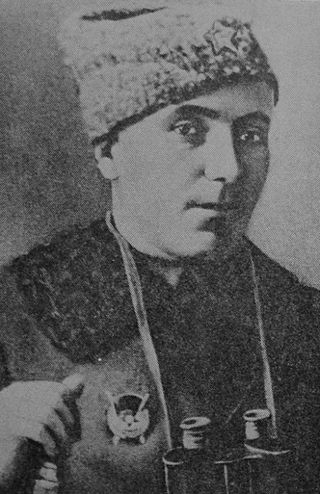 2
Aleksa Dundić or Oleko Dundich was a Croatian participant in Russia's October Revolution. A popular character in Russian literature, Dundić was honoured with the Order of the Red Banner.
2
Aleksa Dundić or Oleko Dundich was a Croatian participant in Russia's October Revolution. A popular character in Russian literature, Dundić was honoured with the Order of the Red Banner.
György Dózsa
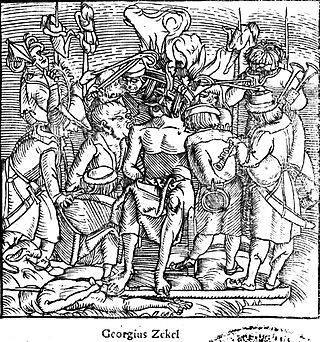 2
György Dózsa was a Székely man-at-arms from Transylvania, Kingdom of Hungary who led a peasants' revolt against the kingdom's landed nobility during the reign of King Vladislaus II of Hungary. The...
2
György Dózsa was a Székely man-at-arms from Transylvania, Kingdom of Hungary who led a peasants' revolt against the kingdom's landed nobility during the reign of King Vladislaus II of Hungary. The...
Kosta Vojinović
 2
Kosta Vojinović, known by his nickname Kosovac (Косовац), was a Serbian soldier who fought in the Balkan Wars and World War I, most notably as a leader of the Toplica Uprising.
2
Kosta Vojinović, known by his nickname Kosovac (Косовац), was a Serbian soldier who fought in the Balkan Wars and World War I, most notably as a leader of the Toplica Uprising.
Jaša Tomić
 2
Jakov Tomić was a Serbian journalist, politician and author from the Serbian region of Vojvodina, which was part of the Austrian Empire when he was born.
2
Jakov Tomić was a Serbian journalist, politician and author from the Serbian region of Vojvodina, which was part of the Austrian Empire when he was born.
Миодраг Чајетинац Чајка
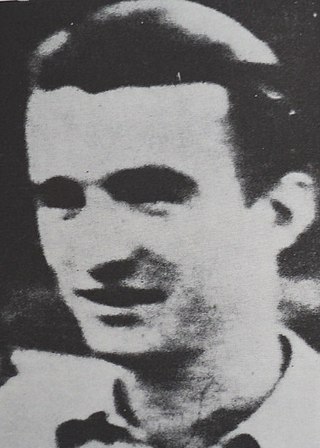 2
Миодраг Чајетинац Чајка био је учесник Народноослободилачке борбе и народни херој Југославије.
2
Миодраг Чајетинац Чајка био је учесник Народноослободилачке борбе и народни херој Југославије.
Миладин Пећинар
 2
Миладин Пећинар био је инжењер грађевинарства, професор универзитета и академик САНУ.
2
Миладин Пећинар био је инжењер грађевинарства, професор универзитета и академик САНУ.
Zoran Radosavljević (pilot)
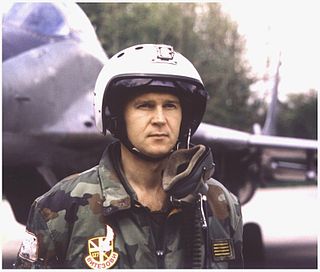 2
Zoran Radosavljević was a Yugoslav fighter pilot who fought in the Kosovo War and came to prominence after he was killed during the NATO bombing of Yugoslavia.
2
Zoran Radosavljević was a Yugoslav fighter pilot who fought in the Kosovo War and came to prominence after he was killed during the NATO bombing of Yugoslavia.
Edvard Kardelj
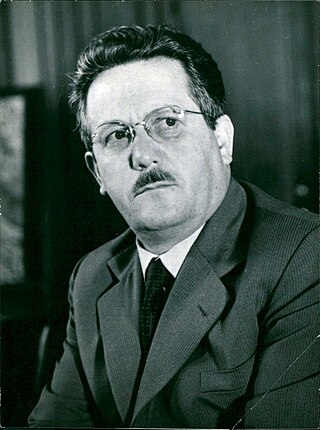 2
Edvard Kardelj, also known by the pseudonyms Bevc, Sperans, and Krištof, was a Yugoslav politician and economist. He was one of the leading members of the Communist Party of Slovenia before World War...
2
Edvard Kardelj, also known by the pseudonyms Bevc, Sperans, and Krištof, was a Yugoslav politician and economist. He was one of the leading members of the Communist Party of Slovenia before World War...
Jovan Grčić Milenko
 2
Jovan Grčić Milenko was a Serbian poet, writer and a physician. The freshness of his lyrical poetry places him in the succession of Branko Radičević and he is also noted for his power of natural...
2
Jovan Grčić Milenko was a Serbian poet, writer and a physician. The freshness of his lyrical poetry places him in the succession of Branko Radičević and he is also noted for his power of natural...
Stojan Protić
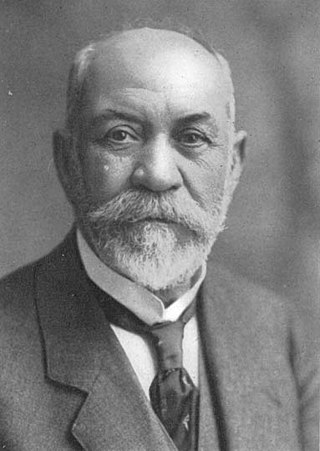 2
Stojan Protić was a Serbian politician and writer. He served as the prime minister of the Kingdom of Serbs, Croats, and Slovenes between 1918 and 1919, and again in 1920, later called Yugoslavia. He...
2
Stojan Protić was a Serbian politician and writer. He served as the prime minister of the Kingdom of Serbs, Croats, and Slovenes between 1918 and 1919, and again in 1920, later called Yugoslavia. He...
Archibald Reiss
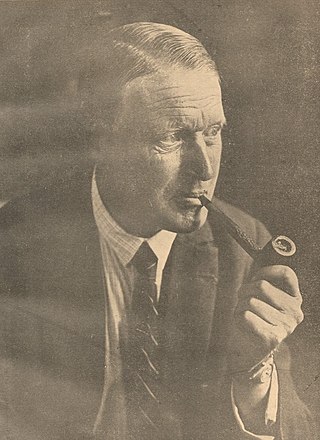 2
Rodolphe Archibald Reiss was a German–Swiss criminology-pioneer, forensic scientist, professor and writer.
2
Rodolphe Archibald Reiss was a German–Swiss criminology-pioneer, forensic scientist, professor and writer.
Чедомир Васовић
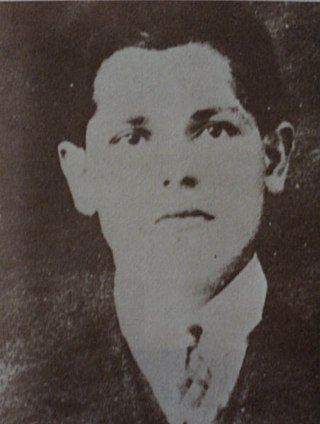 2
Чедомир Чеда Васовић био је учесник Народноослободилачке борбе и народни херој Југославије.
2
Чедомир Чеда Васовић био је учесник Народноослободилачке борбе и народни херој Југославије.
Georges Clemenceau
 2
Georges Benjamin Clemenceau was a French statesman who served as Prime Minister of France from 1906 to 1909 and again from 1917 until 1920. A physician turned journalist, he played a central role in...
2
Georges Benjamin Clemenceau was a French statesman who served as Prime Minister of France from 1906 to 1909 and again from 1917 until 1920. A physician turned journalist, he played a central role in...
Peko Dapčević
 2
Petar "Peko" Dapčević was a Yugoslav communist who fought as a volunteer in the Spanish Civil War, joined the Partisan uprising in Montenegro, and became commander of the Yugoslav 1st Proletarian...
2
Petar "Peko" Dapčević was a Yugoslav communist who fought as a volunteer in the Spanish Civil War, joined the Partisan uprising in Montenegro, and became commander of the Yugoslav 1st Proletarian...
Радоје Дакић
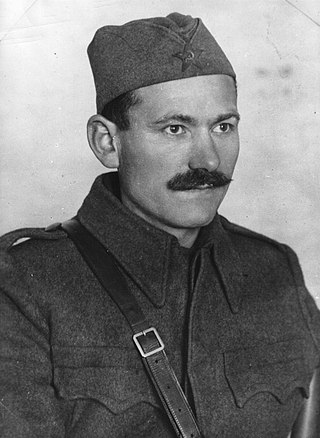 2
Радоје Дакић Брко био је комунистички револуционар, учесник Народноослободилачке борбе, председник Синдиката Југославије и народни херој Југославије.
2
Радоје Дакић Брко био је комунистички револуционар, учесник Народноослободилачке борбе, председник Синдиката Југославије и народни херој Југославије.
Коста Стаменковић
 2
Коста Стаменковић био је комунистички револуционар, учесник Народноослободилачке борбе и народни херој Југославије.
2
Коста Стаменковић био је комунистички револуционар, учесник Народноослободилачке борбе и народни херој Југославије.
Aleksa Nenadović
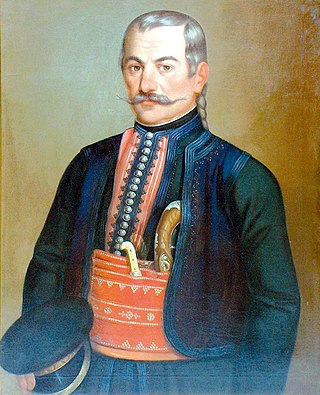 2
Aleksa Nenadović was ober knyaz of Tamnava—Posavina district of Valjevo nahiyah of the Belgrade Pashaluk.
2
Aleksa Nenadović was ober knyaz of Tamnava—Posavina district of Valjevo nahiyah of the Belgrade Pashaluk.
Милка Марковић
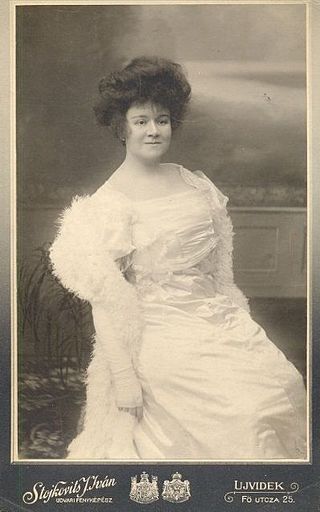 2
Милка Марковић. била је српска драмска уметница и прва жена редитељ код нас. Глумила је у Народном позоришту у Београду и Српском народном позоришту у Новом Саду.
2
Милка Марковић. била је српска драмска уметница и прва жена редитељ код нас. Глумила је у Народном позоришту у Београду и Српском народном позоришту у Новом Саду.
Milutin Bojić
 2
Milutin Bojić was a Serbian war poet, theatre critic, playwright, and soldier.
2
Milutin Bojić was a Serbian war poet, theatre critic, playwright, and soldier.
Veljko Petrović (poet)
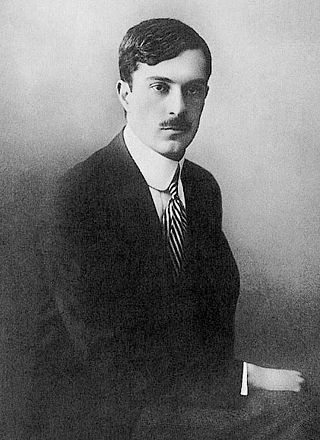 2
Veljko Petrović was a Serbian poet, short story writer, diplomat, and academic.
2
Veljko Petrović was a Serbian poet, short story writer, diplomat, and academic.
Božidar Janković
 2
Božidar Janković may refer to:Božidar Janković (general) (1849-1920), Serbian army general and commander
Božidar Janković (footballer) (1951-1993), Serbian Yugoslav footballer
2
Božidar Janković may refer to:Božidar Janković (general) (1849-1920), Serbian army general and commander
Božidar Janković (footballer) (1951-1993), Serbian Yugoslav footballer
Jovan Ilić
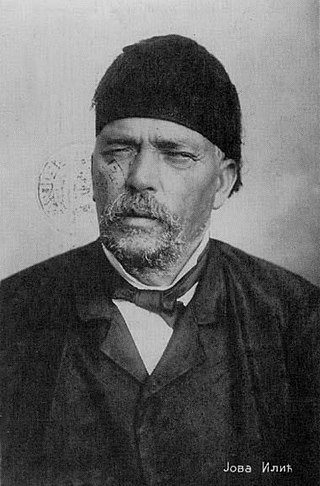 2
Jovan "Jova" Ilić was a Serbian poet and politician.
2
Jovan "Jova" Ilić was a Serbian poet and politician.
Jovan Branković
 2
Jovan Branković was the titular Despot of Serbia from 1493 until his death in 1502. The title of despot was given to him by Hungarian king Vladislas II of Hungary. From 1493 to 1497 he held the title...
2
Jovan Branković was the titular Despot of Serbia from 1493 until his death in 1502. The title of despot was given to him by Hungarian king Vladislas II of Hungary. From 1493 to 1497 he held the title...
Andra Nikolić
 2
Andra Nikolić was a Serbian politician, jurist, writer, literary historian and academic.
2
Andra Nikolić was a Serbian politician, jurist, writer, literary historian and academic.
Constantine the Great
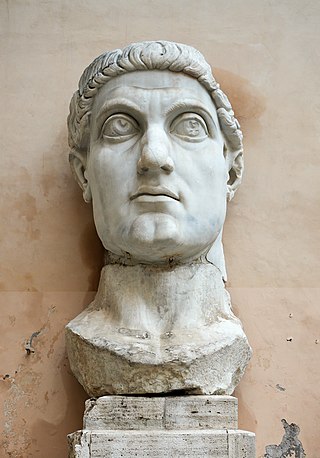 2
Constantine I, also known as Constantine the Great, was a Roman emperor from AD 306 to 337 and the first Roman emperor to convert to Christianity. He played a pivotal role in elevating the status of...
2
Constantine I, also known as Constantine the Great, was a Roman emperor from AD 306 to 337 and the first Roman emperor to convert to Christianity. He played a pivotal role in elevating the status of...
Dragoslav Srejović
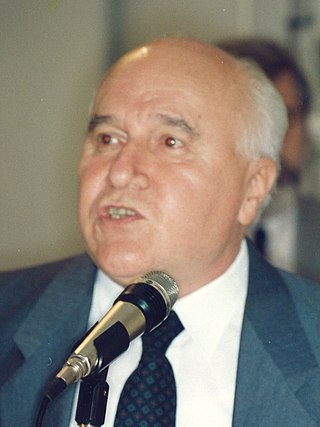 2
Dragoslav Srejović was a Serbian archaeologist, cultural anthropologist and historian. He was the main contributor to the exploration of the Lepenski Vir archaeological site.
2
Dragoslav Srejović was a Serbian archaeologist, cultural anthropologist and historian. He was the main contributor to the exploration of the Lepenski Vir archaeological site.
Dušan A. Popović
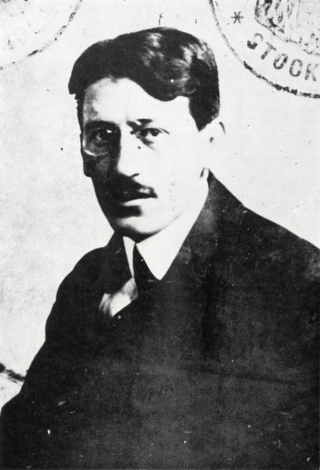 2
Dušan Popović was a Serbian journalist, publicist and politician. He was secretary of the Serbian Social Democratic Party (SSDP).
2
Dušan Popović was a Serbian journalist, publicist and politician. He was secretary of the Serbian Social Democratic Party (SSDP).
Alexander Karađorđević, Prince of Serbia
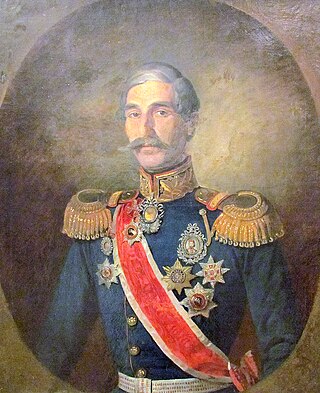 2
Alexander Karađorđević was the prince of Serbia between 1842 and 1858 and a member of the House of Karađorđević.
2
Alexander Karađorđević was the prince of Serbia between 1842 and 1858 and a member of the House of Karađorđević.
Danilo I, Prince of Montenegro
 2
Danilo I Petrović-Njegoš was the ruling Prince of Montenegro from 1851 to 1860. The beginning of his reign marked the transition of Montenegro from a traditional theocratic form of government...
2
Danilo I Petrović-Njegoš was the ruling Prince of Montenegro from 1851 to 1860. The beginning of his reign marked the transition of Montenegro from a traditional theocratic form of government...
Milenko Pavlović
 2
Milenko Pavlović was a Yugoslav fighter pilot who fought in the Kosovo War and came to prominence after he was killed during the NATO bombing of Yugoslavia.
2
Milenko Pavlović was a Yugoslav fighter pilot who fought in the Kosovo War and came to prominence after he was killed during the NATO bombing of Yugoslavia.
Живорад Жика Поповић
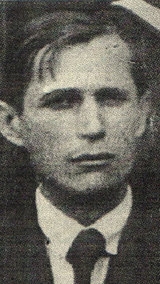 2
Живорад Жика Поповић, професор, публициста, културни радник, револуционар и иницијатор оснивања многобројних установа културе између два светска рата у Шапцу и околним местима.
2
Живорад Жика Поповић, професор, публициста, културни радник, револуционар и иницијатор оснивања многобројних установа културе између два светска рата у Шапцу и околним местима.
Dušan Jerković
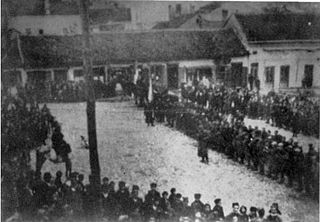 2
Dušan Jerković Uča, učitelj, komandant Užičkog partizanskog odreda i narodni heroj Jugoslavije.
2
Dušan Jerković Uča, učitelj, komandant Užičkog partizanskog odreda i narodni heroj Jugoslavije.
Basil of Ostrog
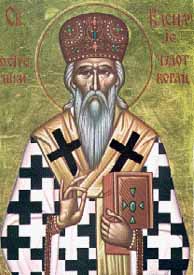 2
Basil of Ostrog, also known as Vasilije, was a Serbian Orthodox bishop of Zahumlje who is venerated as a saint in the Eastern Orthodox Church.
2
Basil of Ostrog, also known as Vasilije, was a Serbian Orthodox bishop of Zahumlje who is venerated as a saint in the Eastern Orthodox Church.
Kosta Nađ
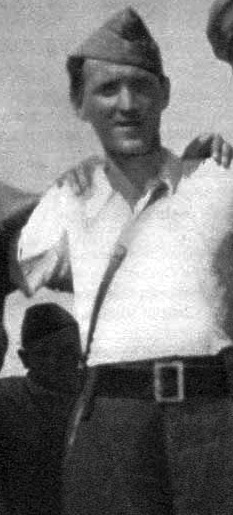 2
Konstantin "Kosta" Nađ was a Yugoslav Partisan army general who commanded Partisan units during World War II in Yugoslavia, primarily in and around the Vojvodina region.
2
Konstantin "Kosta" Nađ was a Yugoslav Partisan army general who commanded Partisan units during World War II in Yugoslavia, primarily in and around the Vojvodina region.
Момчило Поповић (издавач)
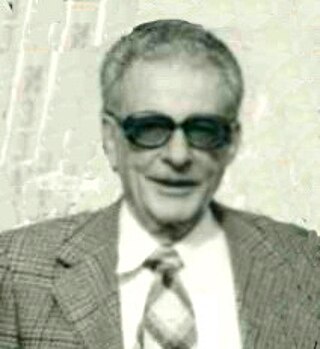 2
Момчило Поповић био је српски издавач, просветни и културни радник, оснивач и директор београдског издавачког предузећа „Вук Караџић“.
2
Момчило Поповић био је српски издавач, просветни и културни радник, оснивач и директор београдског издавачког предузећа „Вук Караџић“.
Đorđe Vajfert
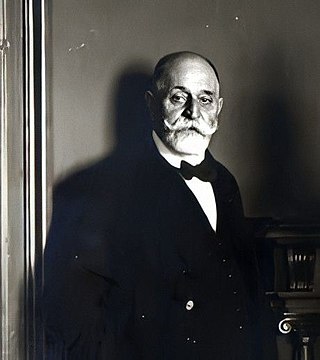 2
Đorđe Vajfert was a Serbian industrialist, Governor of the National Bank of Serbia and after 1920 the National Bank of Yugoslavia. In addition, he is considered the founder of the modern mining...
2
Đorđe Vajfert was a Serbian industrialist, Governor of the National Bank of Serbia and after 1920 the National Bank of Yugoslavia. In addition, he is considered the founder of the modern mining...
Владимир Поповић (драматург)
 2
Владимир Б. Поповић био је српски драмски писац, сценариста, новинар и продуцент. Један од уредника Драмског програма Радио Београда.
2
Владимир Б. Поповић био је српски драмски писац, сценариста, новинар и продуцент. Један од уредника Драмског програма Радио Београда.
Сретен Младеновић Мика
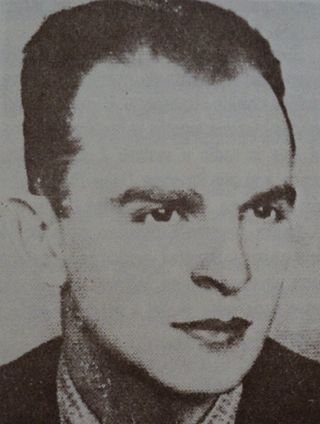 2
Сретен Младеновић Мика био је учесник Народноослободилачке борбе и народни херој Југославије.
2
Сретен Младеновић Мика био је учесник Народноослободилачке борбе и народни херој Југославије.
Đuro Salaj
 2
Đuro Salaj was one of the founders of the Communist Party of Yugoslavia and the first president of the United Labour Unions of Yugoslavia.
2
Đuro Salaj was one of the founders of the Communist Party of Yugoslavia and the first president of the United Labour Unions of Yugoslavia.
Tadeusz Kościuszko
 2
Andrzej Tadeusz Bonawentura Kościuszko was a Polish military engineer, statesman, and military leader who then became a national hero in Poland, the United States, and Belarus. He fought in the...
2
Andrzej Tadeusz Bonawentura Kościuszko was a Polish military engineer, statesman, and military leader who then became a national hero in Poland, the United States, and Belarus. He fought in the...
Rade Končar
 2
Rade Končar was a Croatian Serb politician and leader of the Yugoslav Partisans in the Independent State of Croatia and Dalmatia during the early stages of World War II in Yugoslavia. He became a...
2
Rade Končar was a Croatian Serb politician and leader of the Yugoslav Partisans in the Independent State of Croatia and Dalmatia during the early stages of World War II in Yugoslavia. He became a...
Tadija Sondermajer
 2
Tadija R. Sondermajer was a Serbian aviator, aeronautical engineer and a pioneer of Yugoslav aviation.
2
Tadija R. Sondermajer was a Serbian aviator, aeronautical engineer and a pioneer of Yugoslav aviation.
Ђука Динић
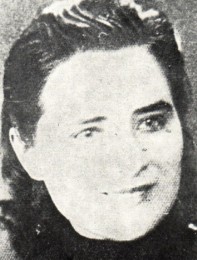 2
Ђурђелина Ђука Динић била је текстилна радница, учесница Народноослободилачке борбе и народни херој Југославије.
2
Ђурђелина Ђука Динић била је текстилна радница, учесница Народноослободилачке борбе и народни херој Југославије.
Jovan Mikić
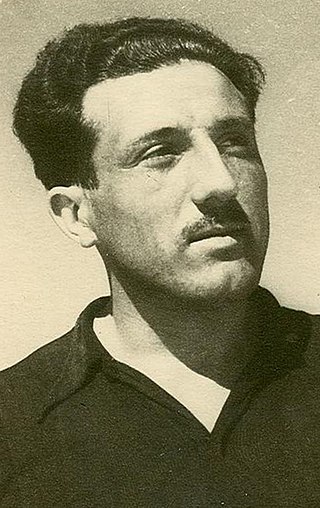 2
Jovan Mikić, nicknamed Spartak, was a Yugoslav record holder in athletics. He competed in the men's triple jump at the 1936 Summer Olympics.
2
Jovan Mikić, nicknamed Spartak, was a Yugoslav record holder in athletics. He competed in the men's triple jump at the 1936 Summer Olympics.
Pera Segedinac
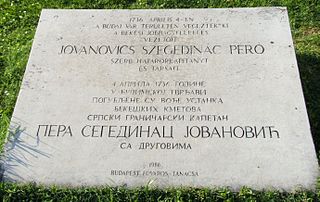 2
Petar Jovanović, known as Pera Segedinac, was a Habsburg Serb military officer, a captain in Pomorišje. He led a Serb revolt in 1735.
2
Petar Jovanović, known as Pera Segedinac, was a Habsburg Serb military officer, a captain in Pomorišje. He led a Serb revolt in 1735.
Dimitrije, Serbian Patriarch
 2
Dimitrije was the first Patriarch of the reunified Serbian Orthodox Church, from 1920 until his death. He was styled "His Holiness, the Archbishop of Peć, Metropolitan of Belgrade and Karlovci, and...
2
Dimitrije was the first Patriarch of the reunified Serbian Orthodox Church, from 1920 until his death. He was styled "His Holiness, the Archbishop of Peć, Metropolitan of Belgrade and Karlovci, and...
Borislav Mihajlović Mihiz
 2
Borislav "Mihiz" Mihajlović was a Serbian writer and literary critic.
2
Borislav "Mihiz" Mihajlović was a Serbian writer and literary critic.
Patrice Lumumba
 2
Patrice Émery Lumumba, born Isaïe Tasumbu Tawosa, was a Congolese politician and independence leader who served as the first prime minister of the Democratic Republic of the Congo from June until...
2
Patrice Émery Lumumba, born Isaïe Tasumbu Tawosa, was a Congolese politician and independence leader who served as the first prime minister of the Democratic Republic of the Congo from June until...
Jovan Ristić
 2
Jovan Ristić was a Serbian politician, diplomat and historian.
2
Jovan Ristić was a Serbian politician, diplomat and historian.
Mihailo Milovanović
 2
Mihailo Milovanović was a Serbian painter, sculptor and writer. He was one of the founders of the Association of Painters of Serbia. During the First World War, he was a war painter of the Serbian...
2
Mihailo Milovanović was a Serbian painter, sculptor and writer. He was one of the founders of the Association of Painters of Serbia. During the First World War, he was a war painter of the Serbian...
Панта Михајловић
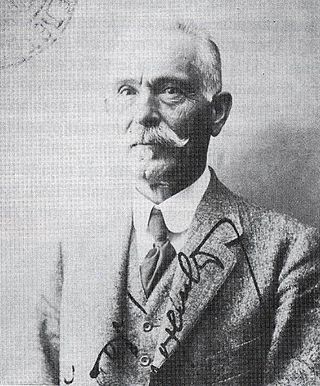 2
Пантелејмон „Панта” Михајловић био је српски инжењер и пионир на пољу телекомуникација. Увео је прве телефоне у Београду.
2
Пантелејмон „Панта” Михајловић био је српски инжењер и пионир на пољу телекомуникација. Увео је прве телефоне у Београду.
Josif Marinković
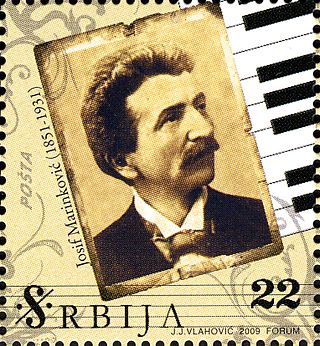 2
Josif Marinković was a Serbian composer and choral director. Like his younger contemporary Stevan St. Mokranjac, he was devoted to mainly vocal genres—lied and choral. Marinković was a romanticist...
2
Josif Marinković was a Serbian composer and choral director. Like his younger contemporary Stevan St. Mokranjac, he was devoted to mainly vocal genres—lied and choral. Marinković was a romanticist...
Milan Dedinac
 2
Milan Dedinac was a Serbian poet, the most expressive lyricist among the Surrealists. Similar to Crnjanski, although in a different way, he was a follower of the creator of the Serbian lyric song...
2
Milan Dedinac was a Serbian poet, the most expressive lyricist among the Surrealists. Similar to Crnjanski, although in a different way, he was a follower of the creator of the Serbian lyric song...
Vladimir Perić
 2
Vladimir Perić, best known by the nom de guerre Valter, was a Yugoslav-Serb Partisan commander in German-occupied Sarajevo during World War II.
2
Vladimir Perić, best known by the nom de guerre Valter, was a Yugoslav-Serb Partisan commander in German-occupied Sarajevo during World War II.
Milutin Uskoković
 2
Milutin Uskoković was a Serbian short story writer and soldier.
2
Milutin Uskoković was a Serbian short story writer and soldier.
Astrid Lindgren
 2
Astrid Anna Emilia Lindgren was a Swedish writer of fiction and screenplays. She is best known for several children's book series, featuring Pippi Longstocking, Emil of Lönneberga,...
2
Astrid Anna Emilia Lindgren was a Swedish writer of fiction and screenplays. She is best known for several children's book series, featuring Pippi Longstocking, Emil of Lönneberga,...
Светолик Ранковић
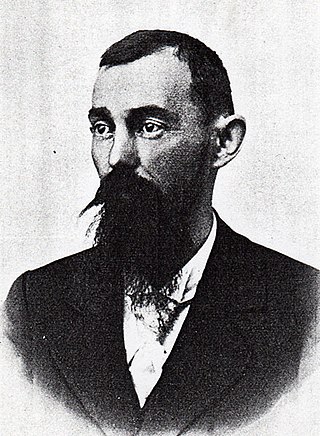 2
Светолик Ранковић био је српски писац из периода реализма. Његов отац Павле у време рођења Светолика био је учитељ у Моштаници, а постао је свештеник након што се породица преселила у Гараше, село у...
2
Светолик Ранковић био је српски писац из периода реализма. Његов отац Павле у време рођења Светолика био је учитељ у Моштаници, а постао је свештеник након што се породица преселила у Гараше, село у...
Pavle Nenadović
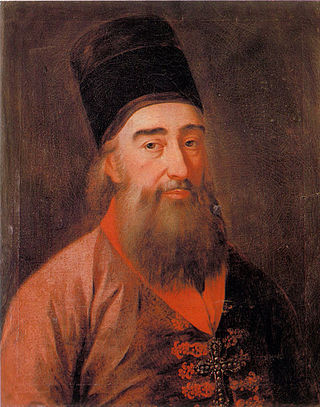 2
Pavle Nenadović was the Serbian Orthodox Archbishop and Metropolitan of Karlovci from 1749 to 1768.
2
Pavle Nenadović was the Serbian Orthodox Archbishop and Metropolitan of Karlovci from 1749 to 1768.
Љутица Богдан
 2
Љутица Богдан је српски феудални властелин, господар града Драме и епски јунак из 14. века.
2
Љутица Богдан је српски феудални властелин, господар града Драме и епски јунак из 14. века.
Branko Miljković
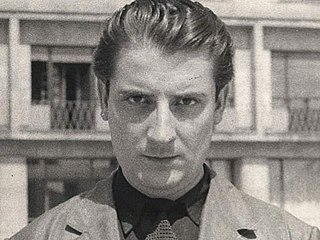 2
Branko Miljković was a Serbian poet.
2
Branko Miljković was a Serbian poet.
Duško Radović
 2
Dušan "Duško" Radović was a Serbian writer, journalist, aphorist and a poet.
2
Dušan "Duško" Radović was a Serbian writer, journalist, aphorist and a poet.
Grigorije Božović
 2
Grigorije Božović, was a writer, professor of the Prizren seminary, one of the leaders of the Serbian movement in Macedonia, primarily in the Bitola Committee of the Serbian Chetnik organization, and...
2
Grigorije Božović, was a writer, professor of the Prizren seminary, one of the leaders of the Serbian movement in Macedonia, primarily in the Bitola Committee of the Serbian Chetnik organization, and...
Rajko Mitić
 2
Rajko Mitić was a Serbian footballer, coach, executive and journalist.
2
Rajko Mitić was a Serbian footballer, coach, executive and journalist.
Paja Jovanović
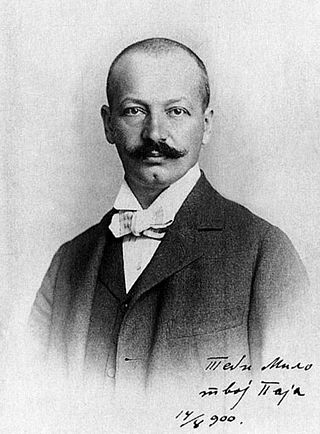 2
Pavle "Paja" Jovanović was a Serbian realist painter who painted more than 1,100 works including: The Wounded Montenegrin (1882), Decorating of the Bride (1886), The Takovo Uprising (1894), Migration...
2
Pavle "Paja" Jovanović was a Serbian realist painter who painted more than 1,100 works including: The Wounded Montenegrin (1882), Decorating of the Bride (1886), The Takovo Uprising (1894), Migration...
Žanka Stokić
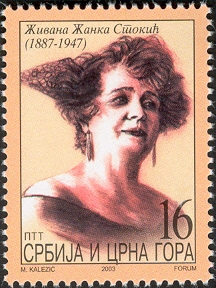 2
Živana "Žanka" Stokić was a Serbian actress.
2
Živana "Žanka" Stokić was a Serbian actress.
Miodrag Petrović Čkalja
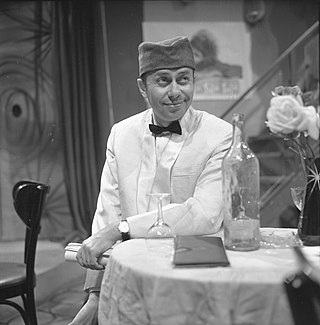 2
Miodrag Petrović, known by his stage name Čkalja (Чкаља), was a Serbian actor and one of the most popular comedians of former Yugoslavia.
2
Miodrag Petrović, known by his stage name Čkalja (Чкаља), was a Serbian actor and one of the most popular comedians of former Yugoslavia.
Светозар Марковић Тоза
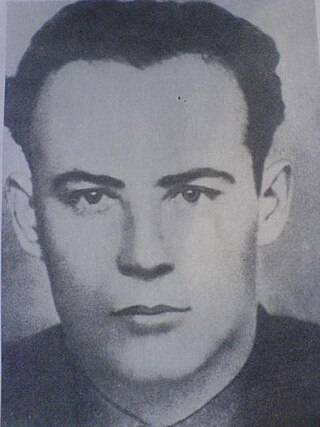 2
Светозар Марковић Тоза био је комунистички револуционар, учесник Народноослободилачке борбе и народни херој Југославије.
2
Светозар Марковић Тоза био је комунистички револуционар, учесник Народноослободилачке борбе и народни херој Југославије.
Marko Miljanov
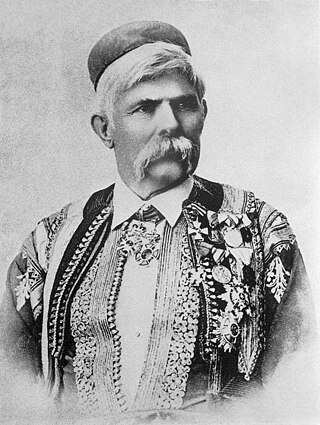 2
Marko Miljanov Popović was a Brda chieftain and Montenegrin general and writer.
2
Marko Miljanov Popović was a Brda chieftain and Montenegrin general and writer.
Leo Tolstoy
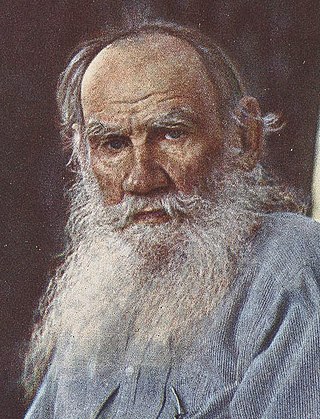 2
Count Lev Nikolayevich Tolstoy, usually referred to in English as Leo Tolstoy, was a Russian writer. He is regarded as one of the greatest and most influential authors of all time. He received...
2
Count Lev Nikolayevich Tolstoy, usually referred to in English as Leo Tolstoy, was a Russian writer. He is regarded as one of the greatest and most influential authors of all time. He received...
Marko Čelebonović
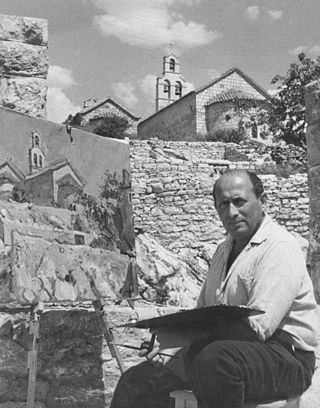 2
Marko Čelebonović was one of the most famous Serbian painters of the 20th century.
2
Marko Čelebonović was one of the most famous Serbian painters of the 20th century.
Milutin Petrović
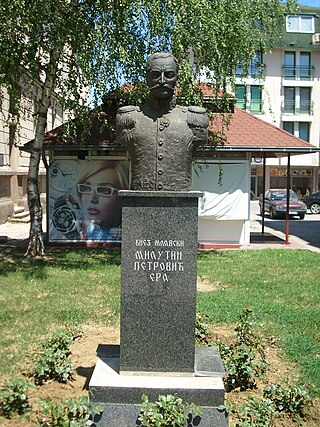 2
Milutin Petrović was one of the vojvodas of the Serbian Revolutionary forces in the First Serbian Uprising against the Ottoman Empire, in charge of the Negotin area. His nom de guerre was Era. He and...
2
Milutin Petrović was one of the vojvodas of the Serbian Revolutionary forces in the First Serbian Uprising against the Ottoman Empire, in charge of the Negotin area. His nom de guerre was Era. He and...
Djordje Stanojević
 2
Djordje M. Stanojević also spelled Đorđe Stanojević was a Serbian physicist, astronomer and professor and rector at the University of Belgrade. He is credited with the introduction of the first...
2
Djordje M. Stanojević also spelled Đorđe Stanojević was a Serbian physicist, astronomer and professor and rector at the University of Belgrade. He is credited with the introduction of the first...
Tomáš Masaryk
 2
Tomáš Garrigue Masaryk was a Czechoslovak statesman, progressive political activist and philosopher who served as the first president of Czechoslovakia from 1918 to 1935. He is regarded as the...
2
Tomáš Garrigue Masaryk was a Czechoslovak statesman, progressive political activist and philosopher who served as the first president of Czechoslovakia from 1918 to 1935. He is regarded as the...
Clara Zetkin
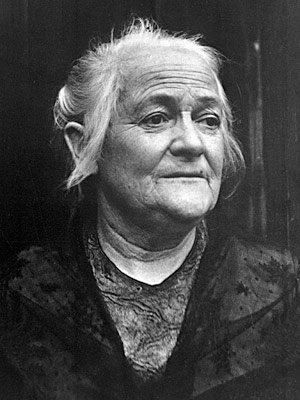 2
Clara Zetkin was a German Marxist theorist, communist activist, and advocate for women's rights.
2
Clara Zetkin was a German Marxist theorist, communist activist, and advocate for women's rights.
George Washington
 2
George Washington was an American Founding Father, military officer, and politician who served as the first president of the United States from 1789 to 1797. Appointed by the Second Continental...
2
George Washington was an American Founding Father, military officer, and politician who served as the first president of the United States from 1789 to 1797. Appointed by the Second Continental...
Dragiša Stojadinović
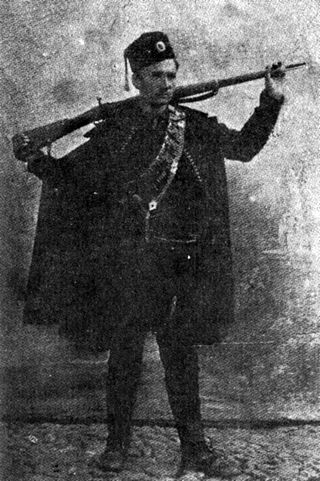 2
Dragiša M. Stojadinović, known by his nom de guerre Krajinac (Крајинац), was a Serbian soldier, lawyer, politician, photographer and filmmaker.
2
Dragiša M. Stojadinović, known by his nom de guerre Krajinac (Крајинац), was a Serbian soldier, lawyer, politician, photographer and filmmaker.
Ljubomir Stojanović
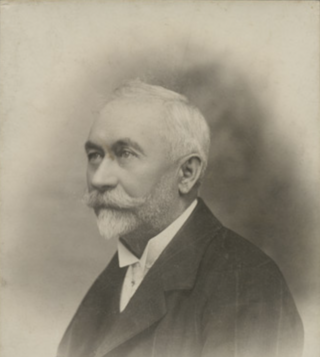 2
Ljubomir Stojanović was a Serbian politician, philologist and academic.
2
Ljubomir Stojanović was a Serbian politician, philologist and academic.
Mihailo Radović
 2
Mihailo Radović (1759–1822) was one of the organizers of the uprising in the Užice region, in 1804 and a participant in the First and Second Serbian Uprising.
2
Mihailo Radović (1759–1822) was one of the organizers of the uprising in the Užice region, in 1804 and a participant in the First and Second Serbian Uprising.
Oton Župančič
 2
Oton Župančič was a Slovene poet, translator, and playwright. He is regarded, alongside Ivan Cankar, Dragotin Kette and Josip Murn, as the beginner of modernism in Slovene literature. In the period...
2
Oton Župančič was a Slovene poet, translator, and playwright. He is regarded, alongside Ivan Cankar, Dragotin Kette and Josip Murn, as the beginner of modernism in Slovene literature. In the period...
Dragiša Lapčević
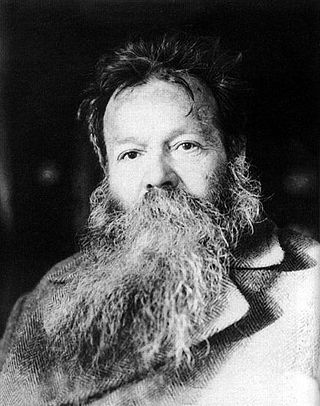 2
Dragutin "Dragiša" Lapčević was a Serbian politician, journalist, and historian. He was one of the founders, alongside Dimitrije Tucović, of the Serbian Social Democratic Party, that supported a...
2
Dragutin "Dragiša" Lapčević was a Serbian politician, journalist, and historian. He was one of the founders, alongside Dimitrije Tucović, of the Serbian Social Democratic Party, that supported a...
Skender Kulenović
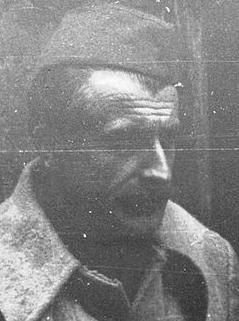 2
Skender Kulenović was a Bosnian poet, novelist and dramatist.
2
Skender Kulenović was a Bosnian poet, novelist and dramatist.
Đorđe Andrejević-Kun
 2
Đorđe Andrejević-Kun was a Serbian painter and academic. He designed the coat of arms of the City of Belgrade and reputedly designed the coat of arms of the Socialist Federal Republic of Yugoslavia...
2
Đorđe Andrejević-Kun was a Serbian painter and academic. He designed the coat of arms of the City of Belgrade and reputedly designed the coat of arms of the Socialist Federal Republic of Yugoslavia...
Димитрије Маринковић
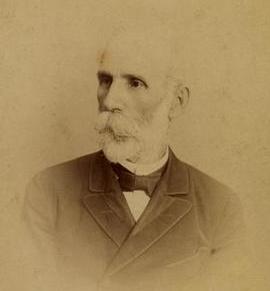 2
Димитрије Маринковић био је српски правник и политичар. Маринковић је био министар унутрашњих послова и министар правде владе Краљевине Србије, као и председник Сената.
2
Димитрије Маринковић био је српски правник и политичар. Маринковић је био министар унутрашњих послова и министар правде владе Краљевине Србије, као и председник Сената.
Danica Marković
 2
Danica Marković was the first modern Serbian woman lyric poet. She was also important for her feminist writings. Her pseudonym was Zvezdanka.
2
Danica Marković was the first modern Serbian woman lyric poet. She was also important for her feminist writings. Her pseudonym was Zvezdanka.
Alexander I of Yugoslavia
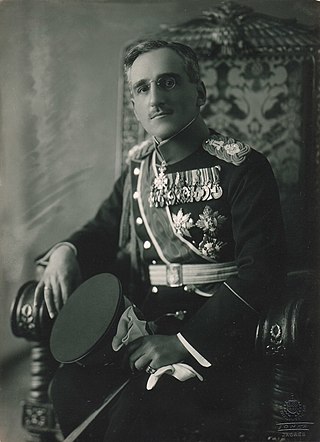 2
Alexander I, also known as Alexander the Unifier, was King of the Serbs, Croats and Slovenes from 16 August 1921 to 3 October 1929 and King of Yugoslavia from 3 October 1929 until his assassination...
2
Alexander I, also known as Alexander the Unifier, was King of the Serbs, Croats and Slovenes from 16 August 1921 to 3 October 1929 and King of Yugoslavia from 3 October 1929 until his assassination...
Jelisaveta Načić
 2
Jelisaveta Načić was a notable Serbian architect. She is remembered as a pioneer who inspired women to enter professions which had earlier been reserved for men. Not only the first female graduate in...
2
Jelisaveta Načić was a notable Serbian architect. She is remembered as a pioneer who inspired women to enter professions which had earlier been reserved for men. Not only the first female graduate in...
Jaša Prodanović
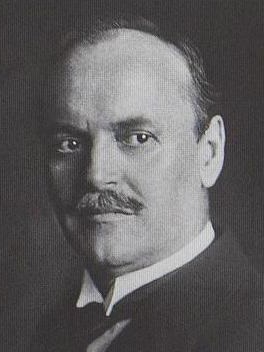 2
Jakov Prodanović was a Serbian politician and writer. He was one of the most prominent proponents of the ideas of republicanism and social justice in the Kingdom of Serbia and in the Yugoslav...
2
Jakov Prodanović was a Serbian politician and writer. He was one of the most prominent proponents of the ideas of republicanism and social justice in the Kingdom of Serbia and in the Yugoslav...
Dušan Petrović Šane
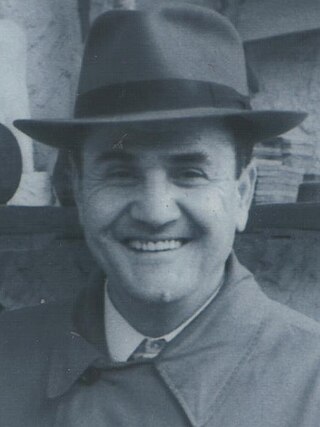 2
Dušan Petrović Šane was a Yugoslav communist soldier and politician who served as President of the People's Assembly of the Socialist Republic of Serbia from 1963 to 1967.
2
Dušan Petrović Šane was a Yugoslav communist soldier and politician who served as President of the People's Assembly of the Socialist Republic of Serbia from 1963 to 1967.
Коста Јовановић (политичар)
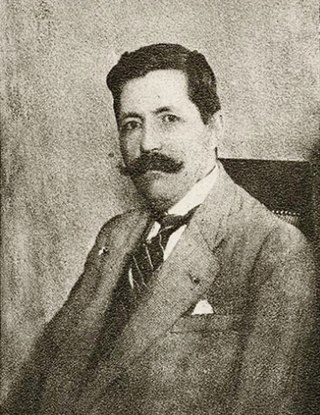 2
Коста Јовановић био је српски агроном, политичар и публициста. Јовановић је био општински одборник, председник и потпредседник Београдске општине.
2
Коста Јовановић био је српски агроном, политичар и публициста. Јовановић је био општински одборник, председник и потпредседник Београдске општине.
Milan Tepić
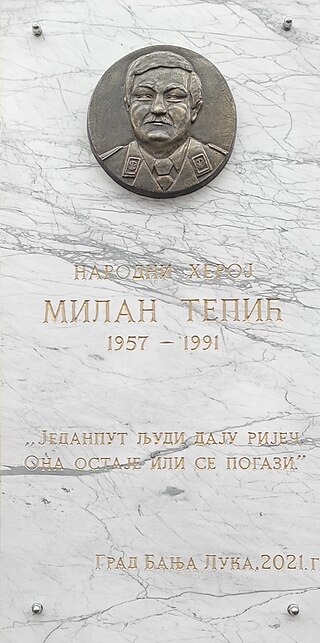 2
Milan Tepić was a major in the Yugoslav People's Army during the Croatian War of Independence.
2
Milan Tepić was a major in the Yugoslav People's Army during the Croatian War of Independence.
Војислав С. Радовановић
 2
Војислав С. Радовановић био је српски и југословенски научни радник.
2
Војислав С. Радовановић био је српски и југословенски научни радник.
Vladimir Rolović
 2
Vladimir Rolović was a Yugoslav politician, diplomat, and a former high officer of the State Security Administration (UDBA). Holder of the "Commemorative Medal of the Partisans of 1941" and as a...
2
Vladimir Rolović was a Yugoslav politician, diplomat, and a former high officer of the State Security Administration (UDBA). Holder of the "Commemorative Medal of the Partisans of 1941" and as a...
Симо Шолаја
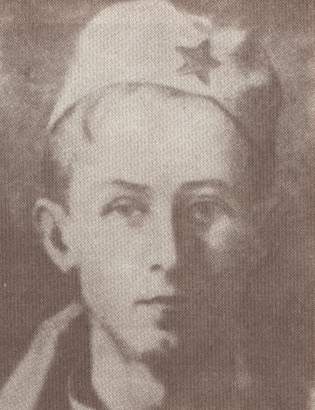 2
Симела Симо Шолаја, учесник Народноослободилачке борбе и народни херој Југославије.
2
Симела Симо Шолаја, учесник Народноослободилачке борбе и народни херој Југославије.
Милан Мијалковић
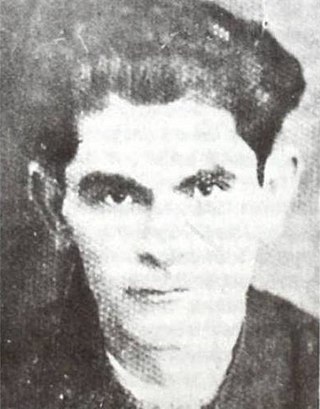 2
Милан Мијалковић Чича био је комунистички револуционар, учесник Народноослободилачке борбе и народни херој Југославије.
2
Милан Мијалковић Чича био је комунистички револуционар, учесник Народноослободилачке борбе и народни херој Југославије.
Blagoje Parović
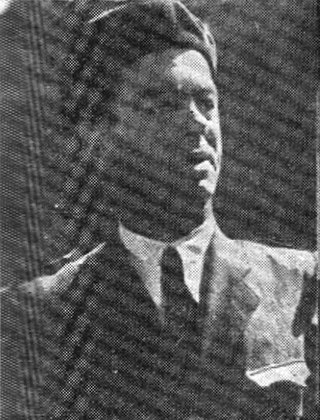 2
Blagoje Parović was a member of the Central Committee of the Communist Party of Yugoslavia and served as a political commissar in the Spanish Civil War.
2
Blagoje Parović was a member of the Central Committee of the Communist Party of Yugoslavia and served as a political commissar in the Spanish Civil War.
Marin Držić
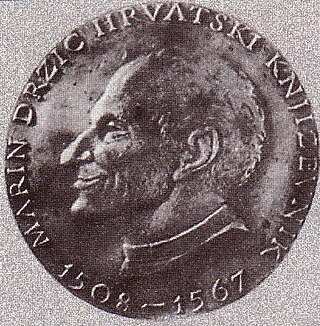 2
Marin Držić was a Croatian writer from Republic of Ragusa. He is considered to be one of the finest Renaissance playwrights and prose writers of Croatian literature.
2
Marin Držić was a Croatian writer from Republic of Ragusa. He is considered to be one of the finest Renaissance playwrights and prose writers of Croatian literature.
Ivan Ribar
 2
Ivan Ribar was a Croatian politician who served in several governments of various forms in Yugoslavia. Ideologically a Pan-Slavist and communist, he was a prominent member of the Yugoslav Partisans,...
2
Ivan Ribar was a Croatian politician who served in several governments of various forms in Yugoslavia. Ideologically a Pan-Slavist and communist, he was a prominent member of the Yugoslav Partisans,...
Žarko Todorović
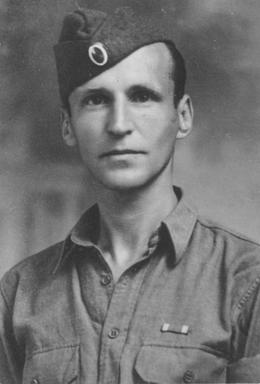 2
Žarko P. Todorović "Valter" was one of the leaders of the Chetnik resistance in the first phase of World War II in the German occupied Yugoslavia, serving as first commander of the undercover Chetnik...
2
Žarko P. Todorović "Valter" was one of the leaders of the Chetnik resistance in the first phase of World War II in the German occupied Yugoslavia, serving as first commander of the undercover Chetnik...
Stefan Dragutin
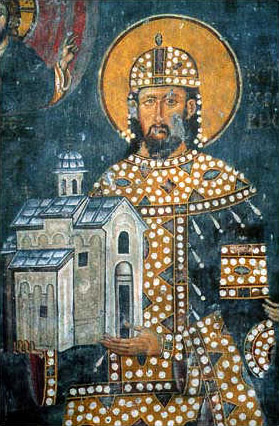 2
Stefan Dragutin, was King of Serbia from 1276 to 1282. From 1282, he ruled a separate kingdom which included northern Serbia, and the neighboring Hungarian banates, for which he was unofficially...
2
Stefan Dragutin, was King of Serbia from 1276 to 1282. From 1282, he ruled a separate kingdom which included northern Serbia, and the neighboring Hungarian banates, for which he was unofficially...
Nikolić noble family
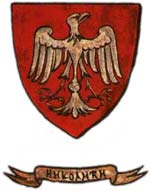 2
Nikolić noble family was a Bosnian medieval noble family from Hum, today Bosnia and Herzegovina. The family's estate was in the western part of the Bosansko Primorje, namely Popovo Polje and Neum....
2
Nikolić noble family was a Bosnian medieval noble family from Hum, today Bosnia and Herzegovina. The family's estate was in the western part of the Bosansko Primorje, namely Popovo Polje and Neum....
Добривоје Радосављевић Боби
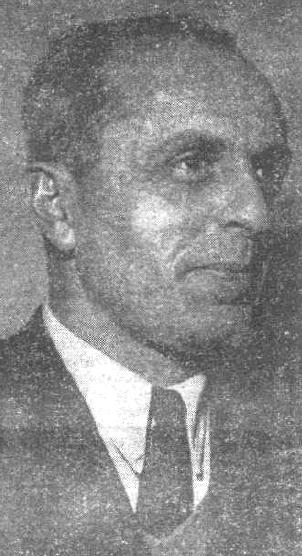 2
Добривоје Радосављевић Боби био је учесник Народноослободилачке борбе, друштвено-политички радник СФРЈ и СР Србије, јунак социјалистичког рада и народни херој Југославије. У периоду од септембра...
2
Добривоје Радосављевић Боби био је учесник Народноослободилачке борбе, друштвено-политички радник СФРЈ и СР Србије, јунак социјалистичког рада и народни херој Југославије. У периоду од септембра...
Митрополит скопски Јосиф
 2
Јосиф био је епископ битољски од 1920. до 1931. и митрополит скопски од 1932. до 1957. године.
2
Јосиф био је епископ битољски од 1920. до 1931. и митрополит скопски од 1932. до 1957. године.
Živko Topalović
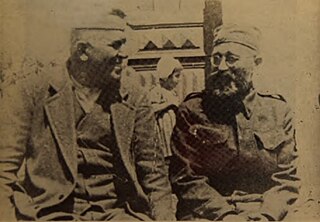 2
Živko Topalović was a Yugoslav socialist politician. Topalović became a leading figure in the Socialist Party of Yugoslavia, founded in 1921. During World War II he became a prominent member of Draža...
2
Živko Topalović was a Yugoslav socialist politician. Topalović became a leading figure in the Socialist Party of Yugoslavia, founded in 1921. During World War II he became a prominent member of Draža...
Đurađ Branković
 2
Đurađ Vuković Branković was the Serbian Despot from 1427 to 1456. He was one of the last Serbian medieval rulers. He was a participant in the battle of Ankara (1402) and Ottoman Interregnum...
2
Đurađ Vuković Branković was the Serbian Despot from 1427 to 1456. He was one of the last Serbian medieval rulers. He was a participant in the battle of Ankara (1402) and Ottoman Interregnum...
Dragoslav Marković
 2
Dragoslav "Draža" Marković was a Serbian communist politician, serving as President and Prime Minister of Serbia.
2
Dragoslav "Draža" Marković was a Serbian communist politician, serving as President and Prime Minister of Serbia.
Дринка Павловић
 2
Дринка Павловић била је учитељица, учесница Народноослободилачке борбе и народни херој Југославије.
2
Дринка Павловић била је учитељица, учесница Народноослободилачке борбе и народни херој Југославије.
Milić od Mačve
 2
Milić Stanković, known by his artistic name Milić of Mačva, was a Serbian painter and artist often named Balkan's Dalí for his figurative surrealist paintings.
2
Milić Stanković, known by his artistic name Milić of Mačva, was a Serbian painter and artist often named Balkan's Dalí for his figurative surrealist paintings.
Momčilo Gavrić
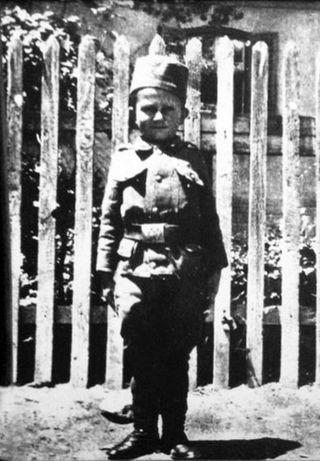 2
Momčilo Gavrić was the youngest Serbian soldier of World War One; he became a soldier at the age of eight.
2
Momčilo Gavrić was the youngest Serbian soldier of World War One; he became a soldier at the age of eight.